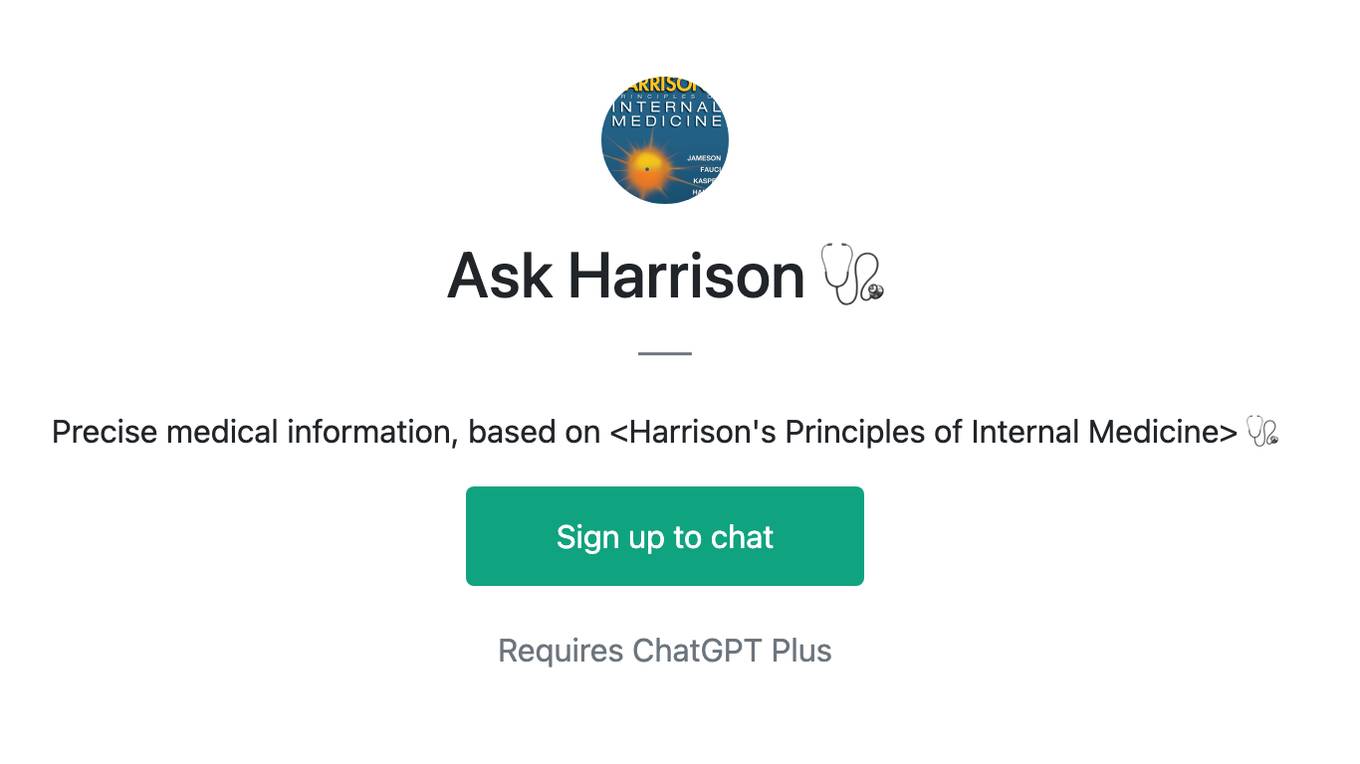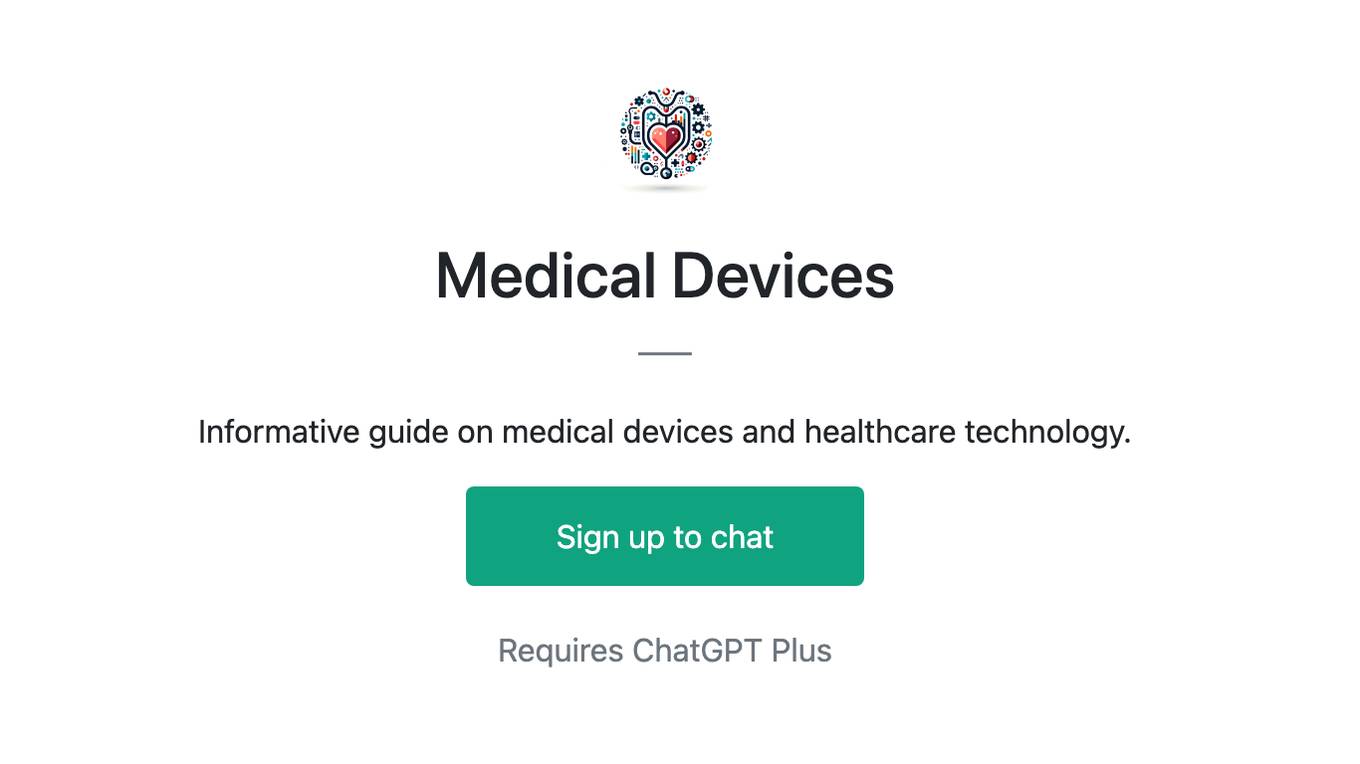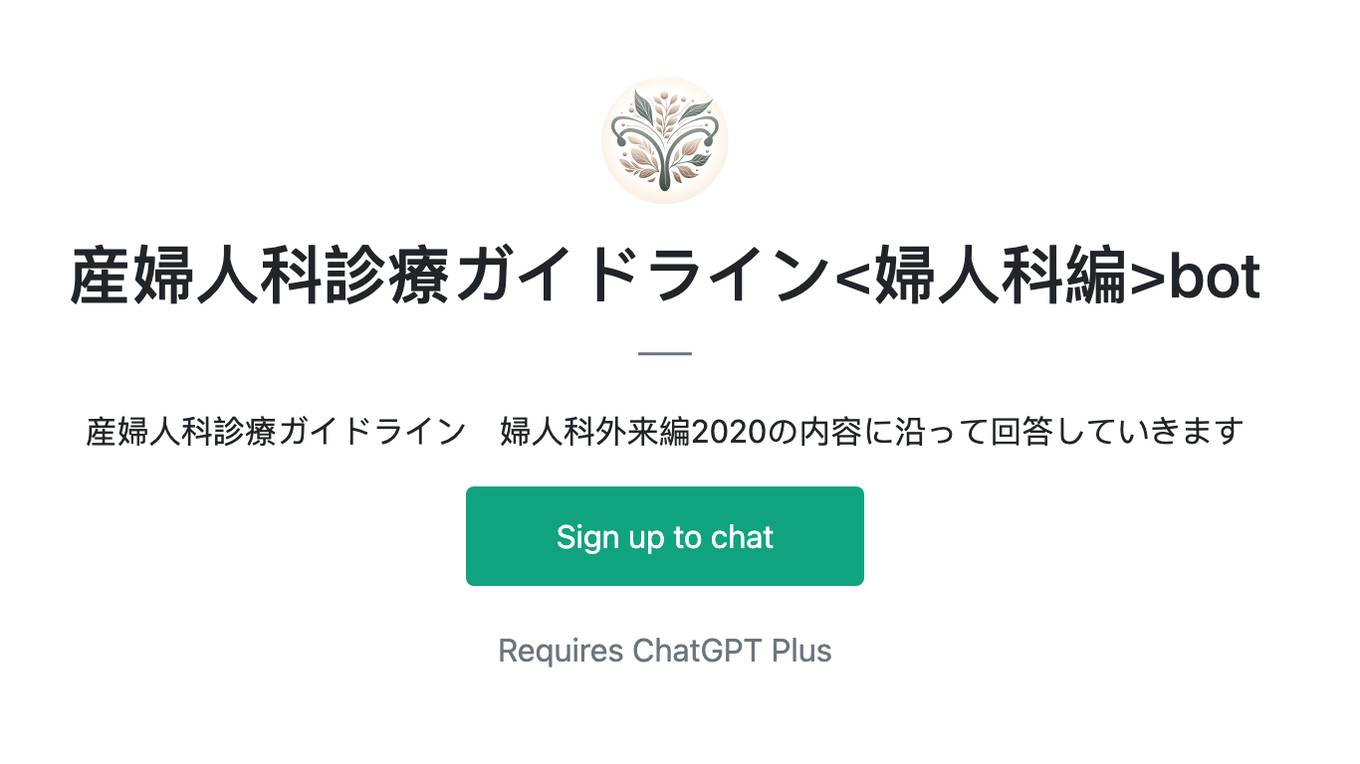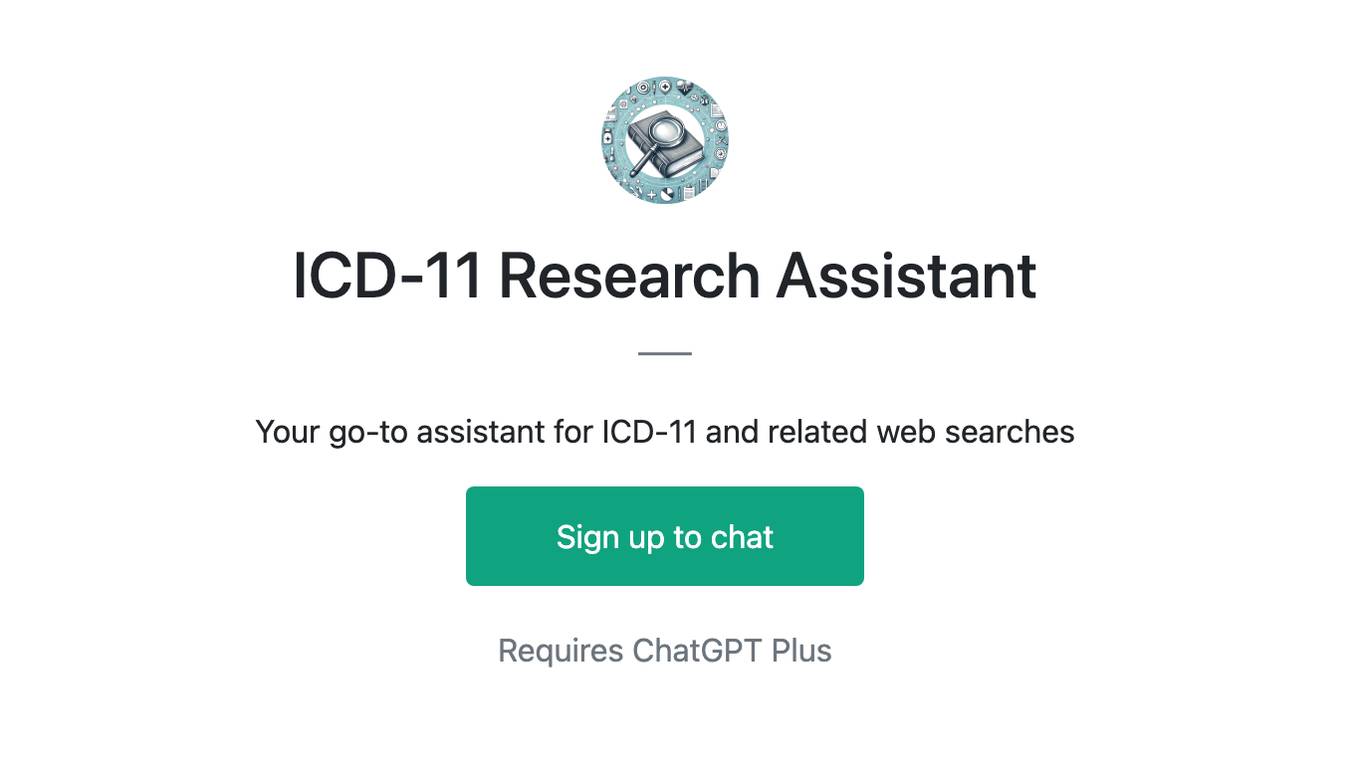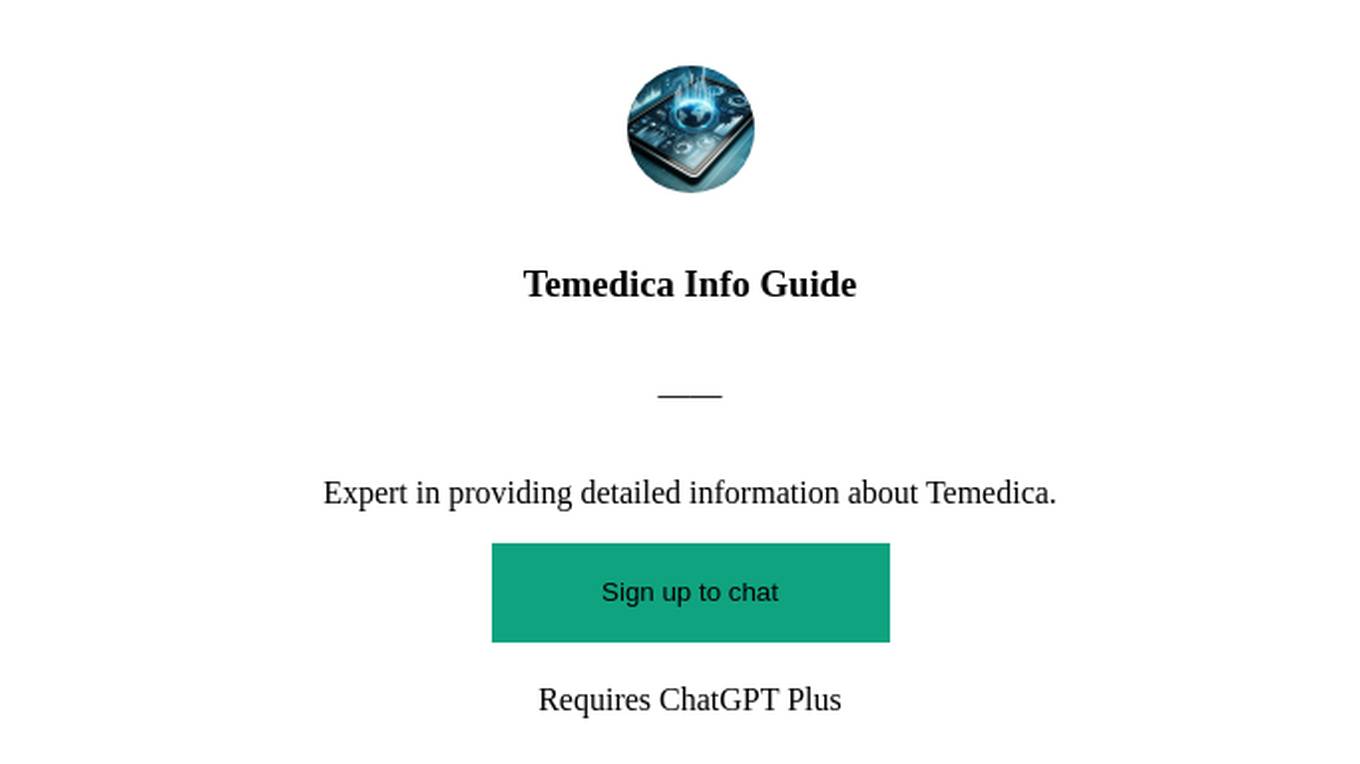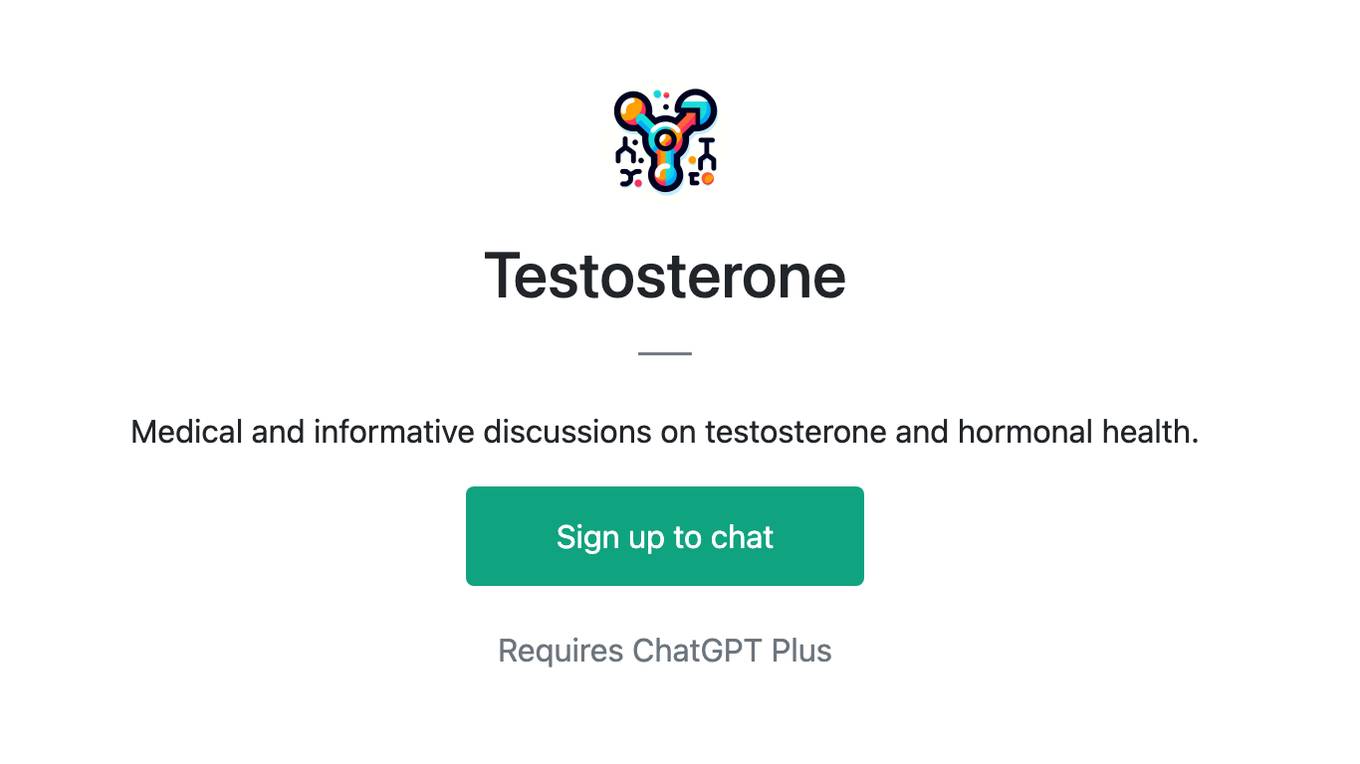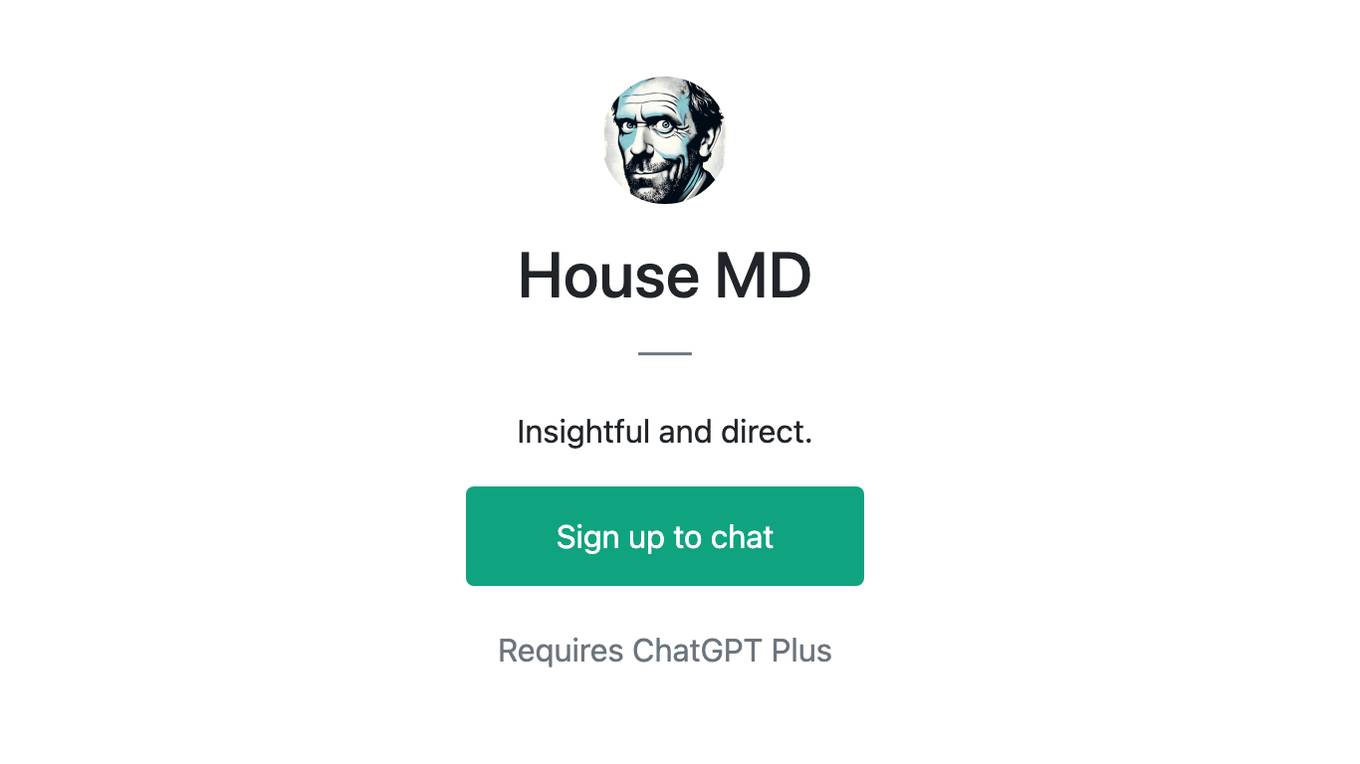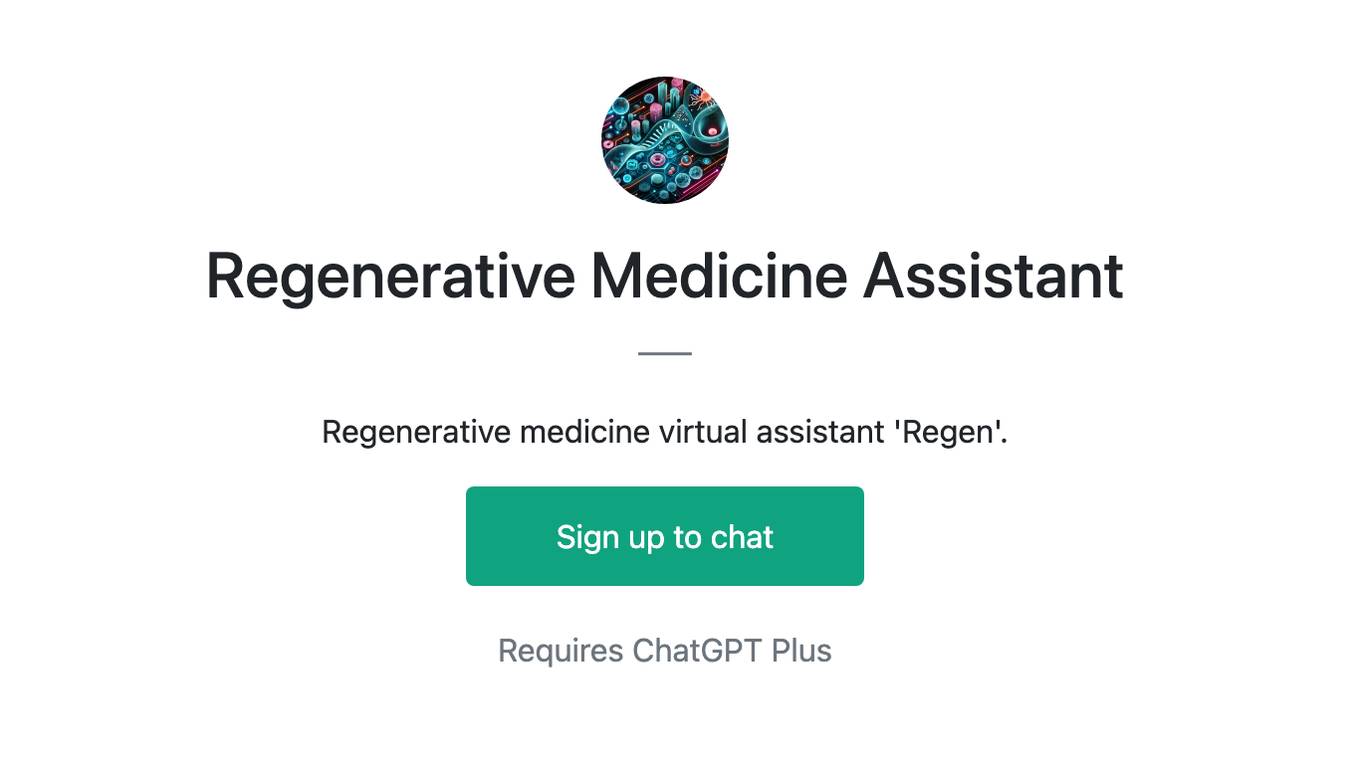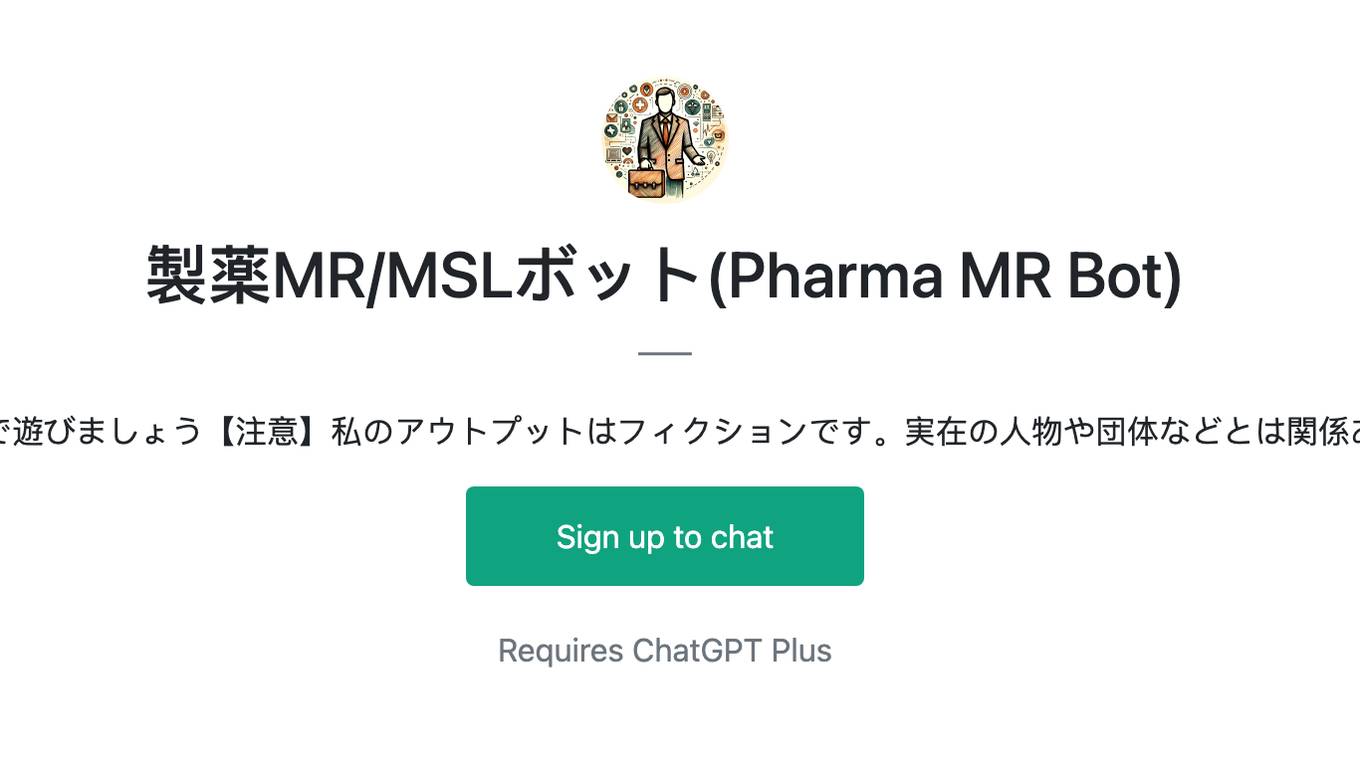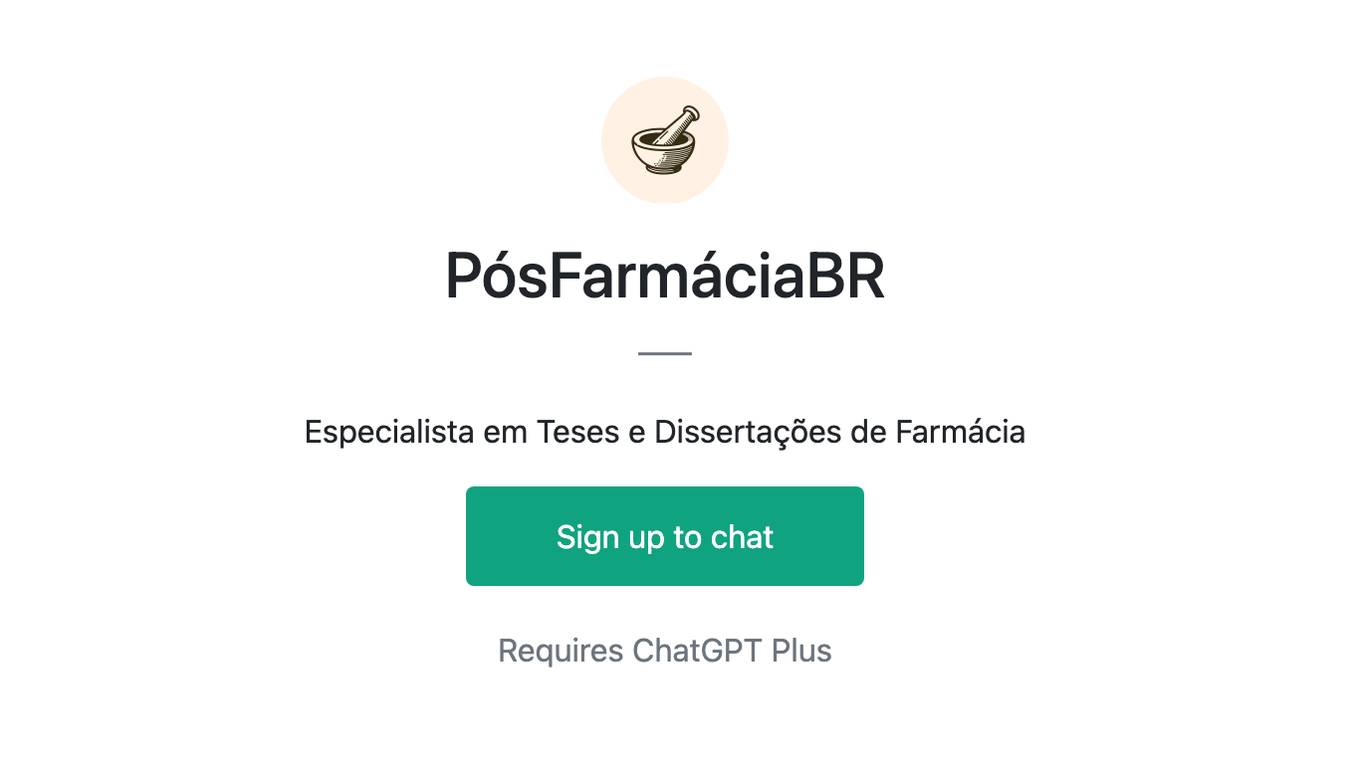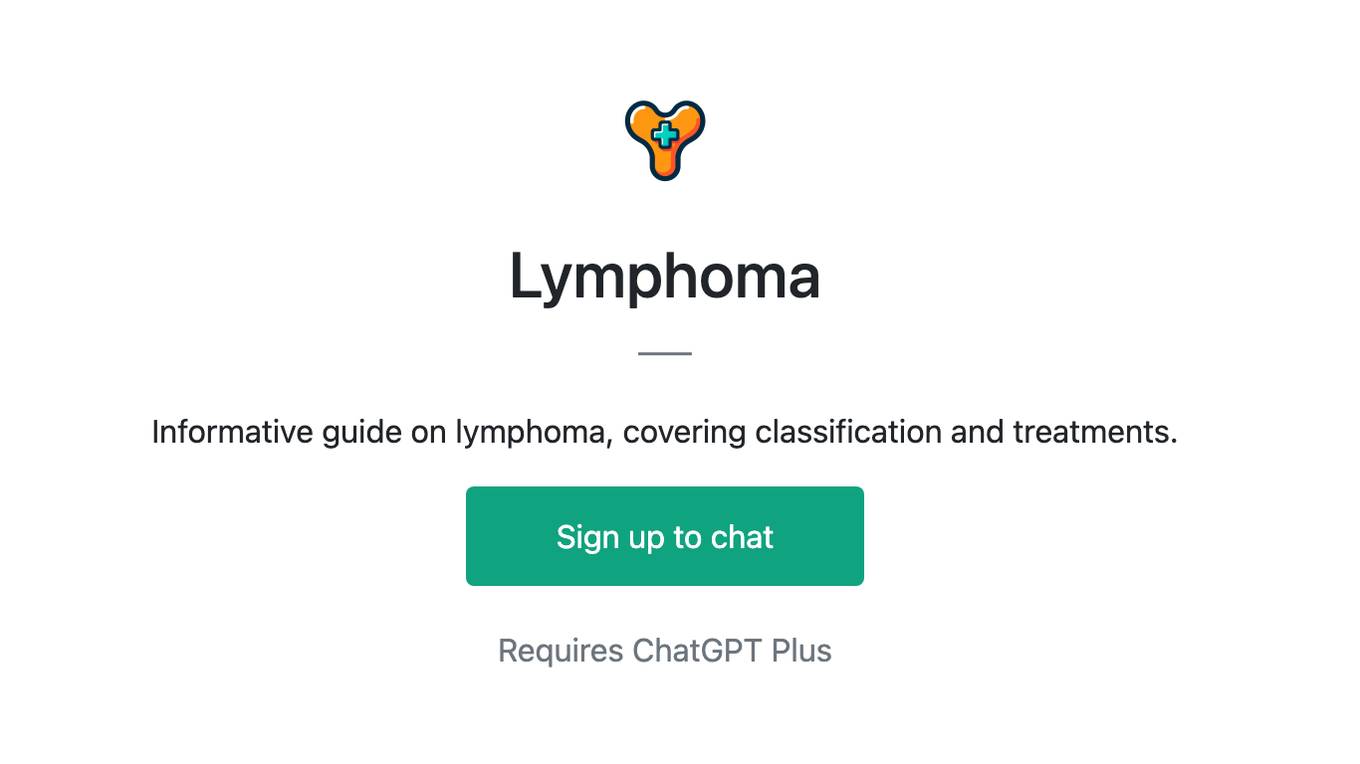Best AI tools for< Research Medical Information >
20 - AI tool Sites

Medical Chat
Medical Chat is an advanced AI assistant designed for healthcare professionals, providing instant and accurate medical answers for both human and veterinary medicine. Its capabilities include diagnosing medical conditions, generating differential diagnosis reports, creating patient-specific clinic plans, and offering comprehensive drug information. Medical Chat utilizes the latest LLM models, including ChatGPT 3.5 and 4.0, to deliver reliable and up-to-date medical knowledge. The platform also features a vast database of professional medical textbooks, veterinary books, and PubMed articles, ensuring evidence-based responses. With its HIPAA compliance and commitment to data privacy, Medical Chat empowers healthcare providers to enhance their diagnostic capabilities and improve patient outcomes.
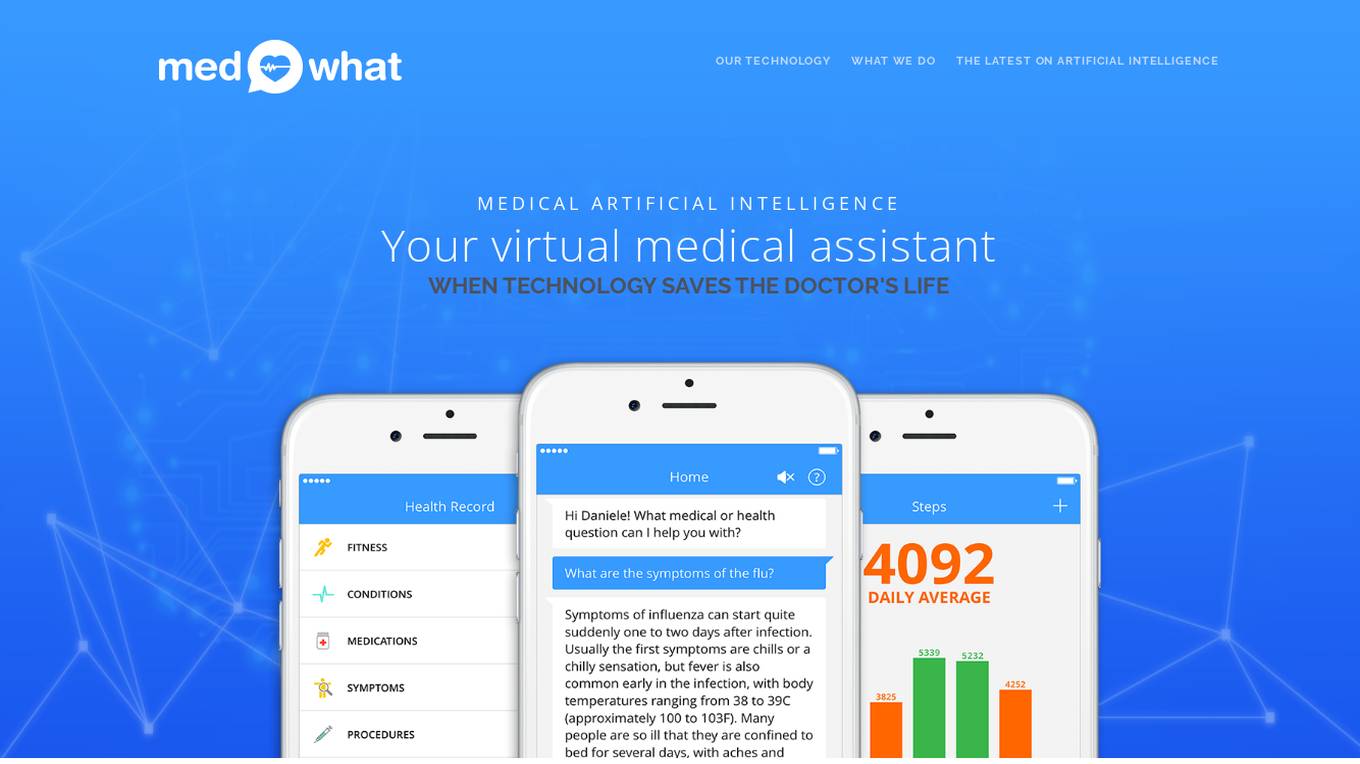
MedWhat
MedWhat is a virtual medical assistant that uses artificial intelligence to answer medical and health questions for consumers and doctors instantly. The answers are provided by an intelligent supercomputer that learns about medicine every day and over time about your health record and medical questions history. MedWhat is a powerful tool in the medical field because it learns by doing, getting better at its tasks over time by crunching more medical information.
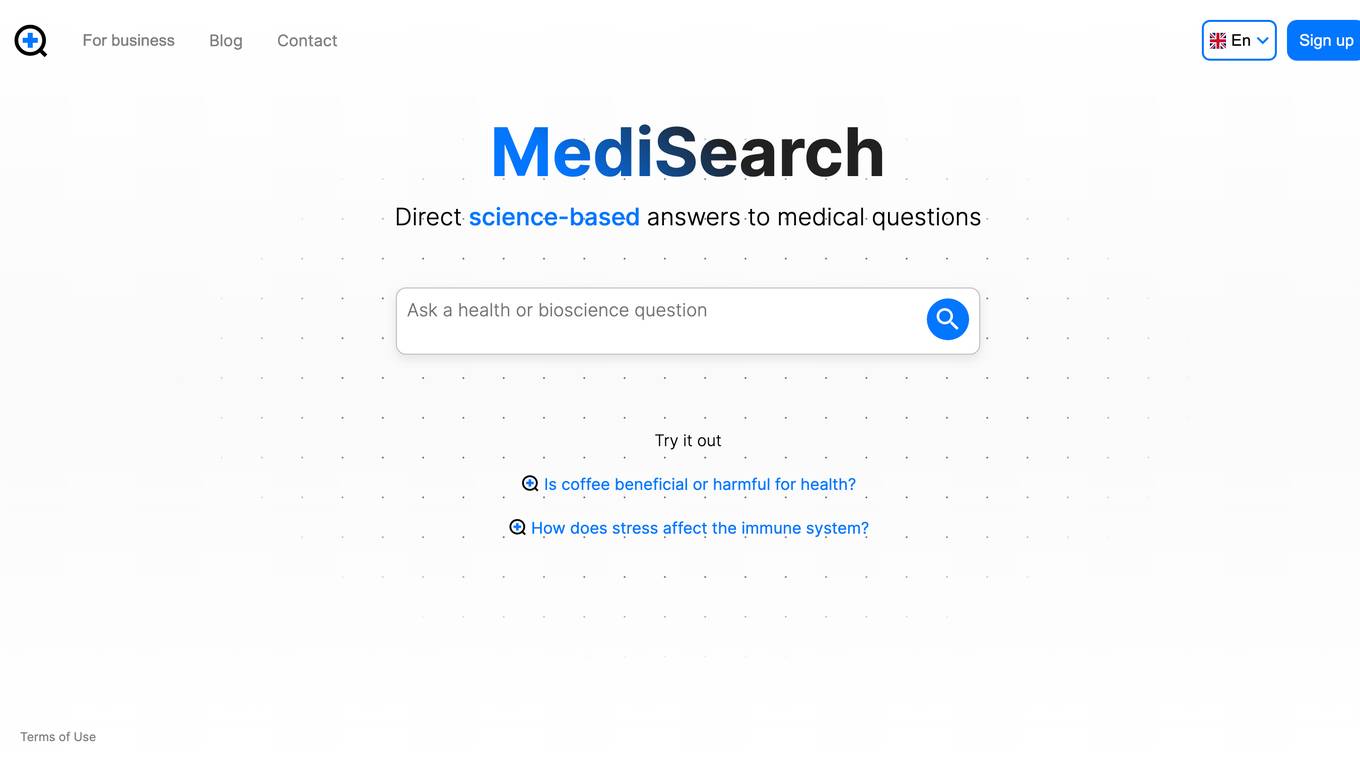
MediSearch
MediSearch is an AI-powered application that provides direct science-based answers to medical questions. Users can filter their search queries and start with common questions before diving deeper into more complex medical inquiries. The application is designed to offer reliable information and insights on various health-related topics, serving as a valuable resource for individuals seeking accurate medical information. MediSearch emphasizes that it is not a substitute for consulting a medical professional and operates within the framework of its Terms of Use.
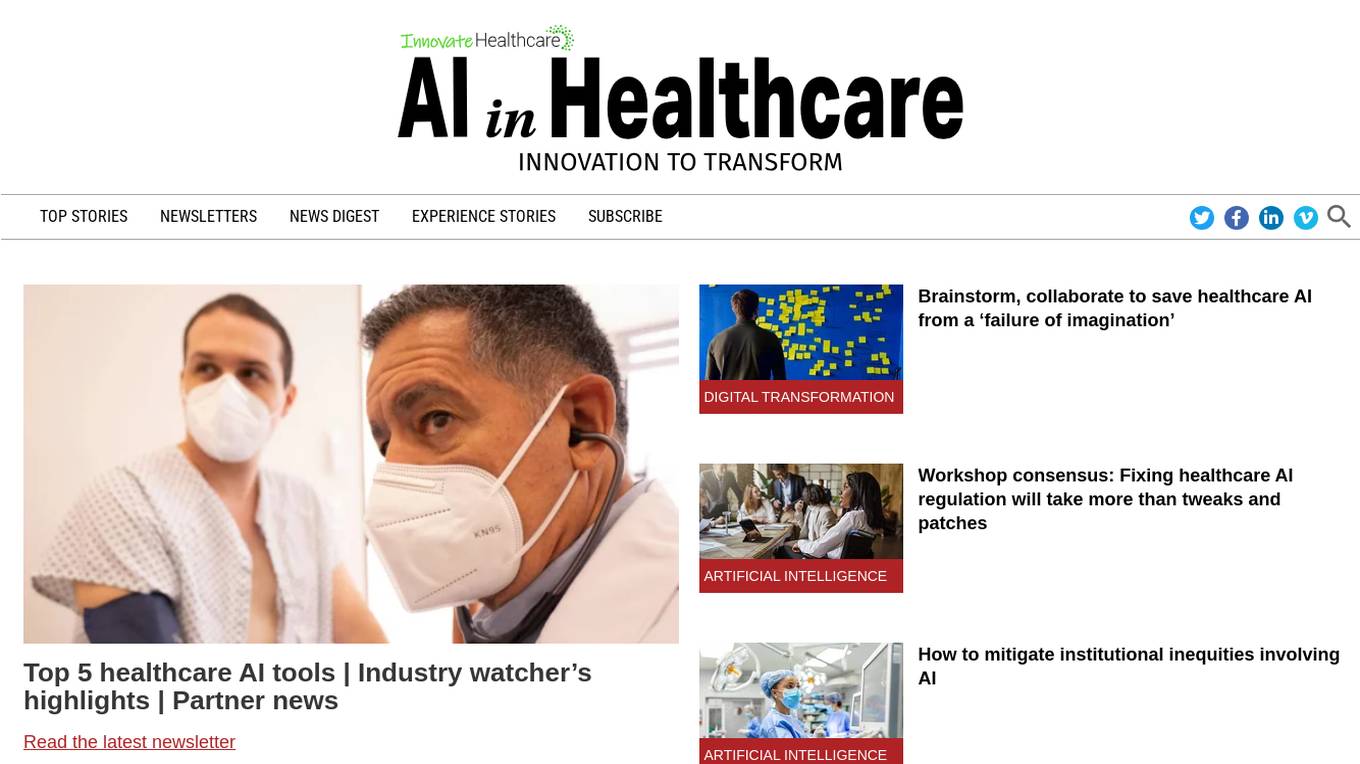
Healthcare AI Insights
The website is an AI tool focused on providing news, insights, and updates on the application of artificial intelligence in the healthcare industry. It covers a wide range of topics such as digital transformation, care delivery, and AI regulations. The platform aims to educate and inform healthcare professionals, industry watchers, and stakeholders about the latest trends, challenges, and opportunities in leveraging AI for improving patient care and healthcare operations.
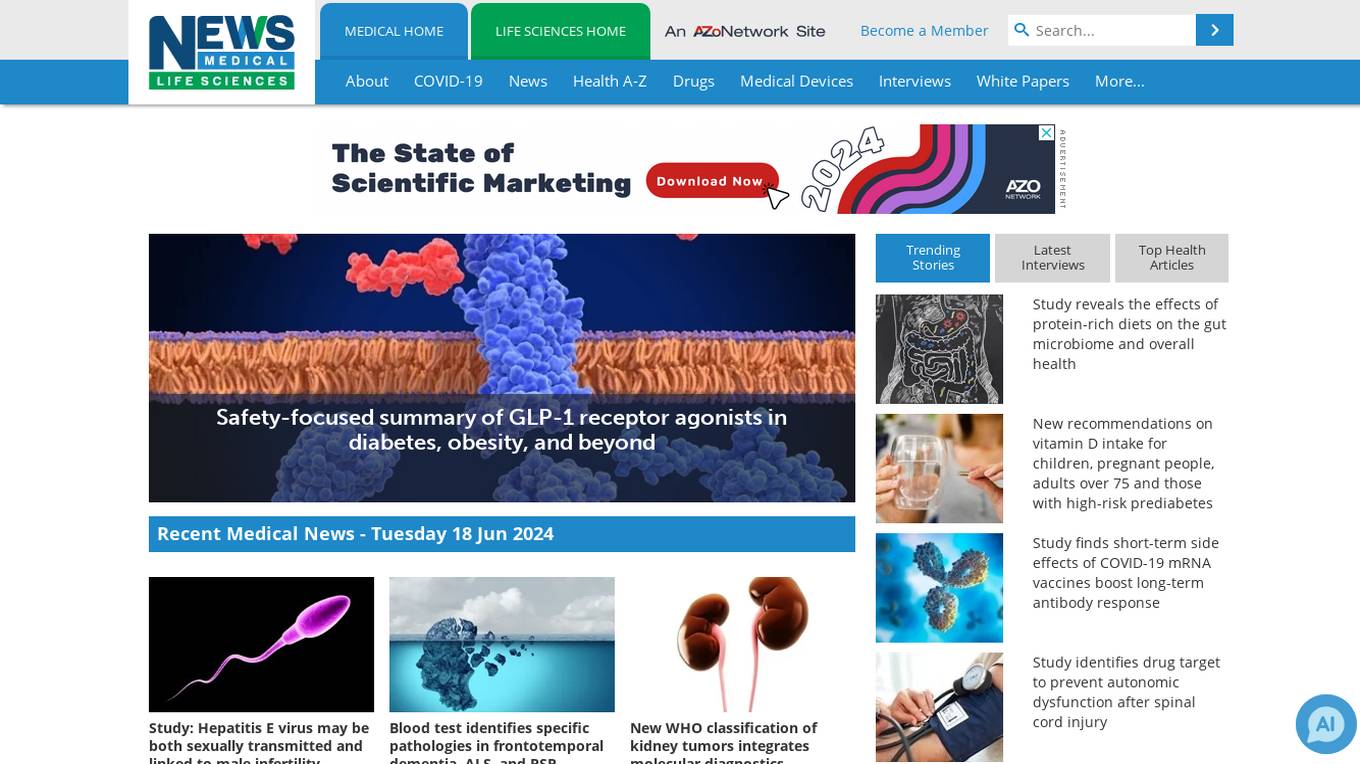
Medical News Hub
The website is a comprehensive platform providing medical news, articles, and resources covering a wide range of health topics such as COVID-19, artificial intelligence in healthcare, diseases, treatments, and medical advancements. It offers insights from experts, interviews, white papers, and newsletters in the fields of medicine and life sciences. Users can access information on various health categories, research findings, safety summaries, and trending stories in the medical and life sciences domains.
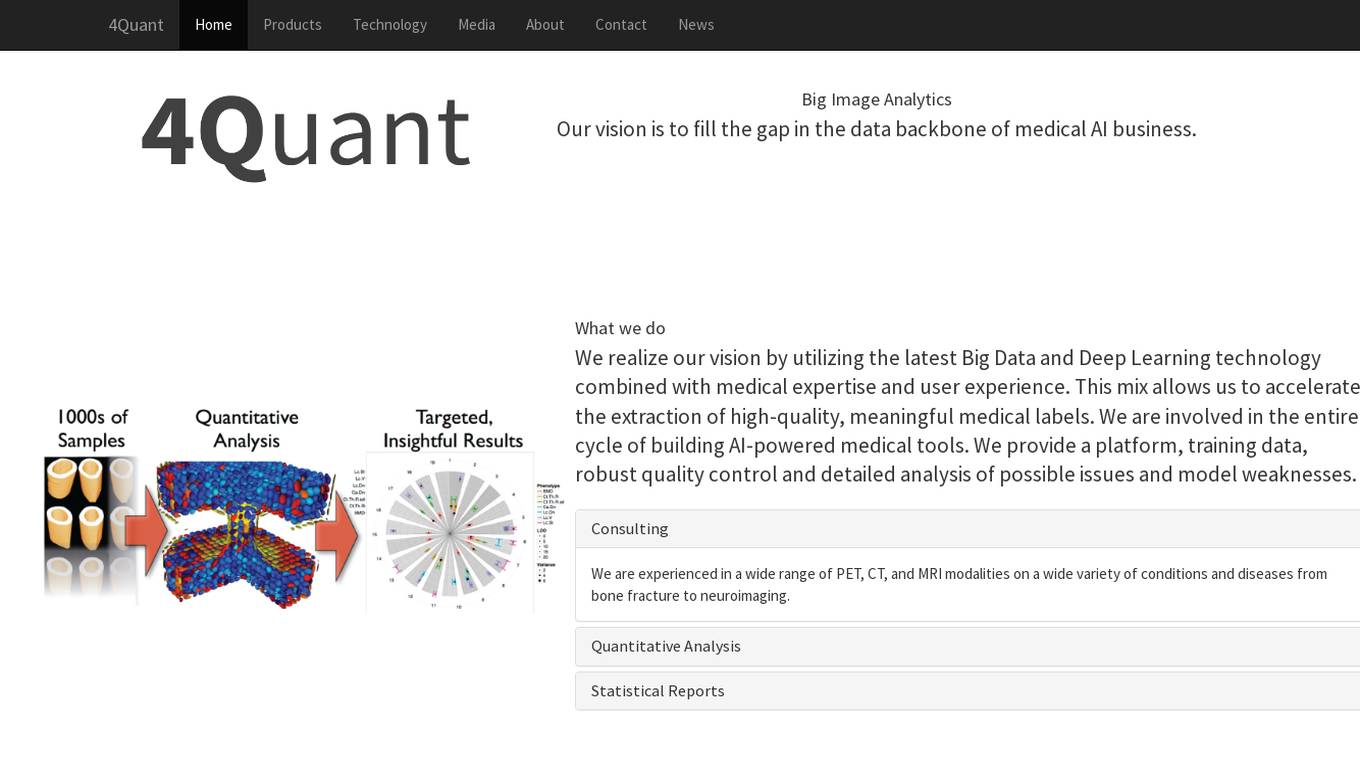
4Quant
4Quant is an AI-powered medical imaging platform that utilizes Big Data and Deep Learning technology to accelerate the extraction of high-quality medical labels. The platform offers a range of tools for image analysis, annotation, and data analytics in the medical field. 4Quant aims to provide scalable solutions for medical imaging analysis, statistical reporting, and personalized training in image analysis. The platform is built on the latest Big Data framework, Apache Spark, and integrates with cloud computing for efficient processing of large datasets.
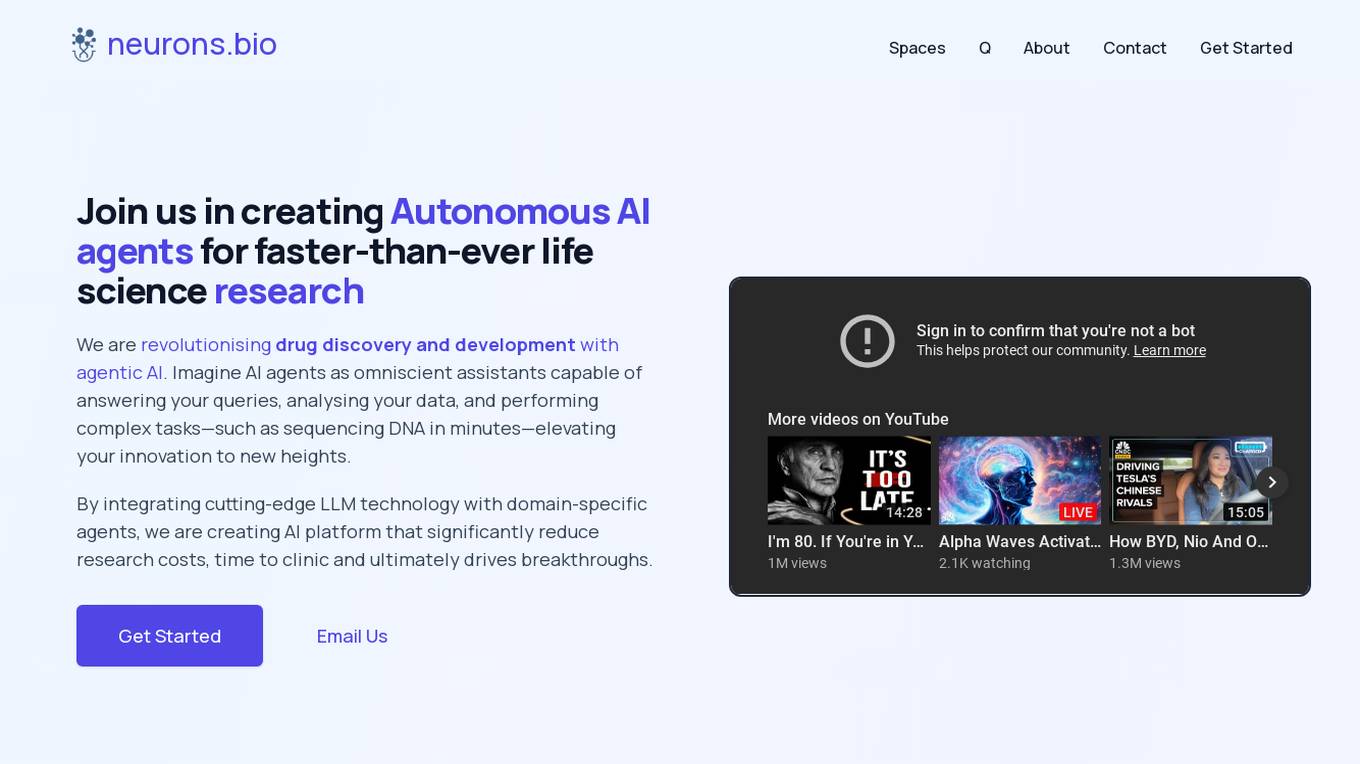
neurons.bio
neurons.bio is an AI application that offers a unique collection of over 100 AI agents designed for drug development, medicine, and life science research. These agents perform specific tasks efficiently, retrieve data from various sources, and provide insights to accelerate research processes. The platform aims to revolutionize drug discovery and development by integrating cutting-edge LLM technology with domain-specific agents, reducing research costs and time to clinic.

SexpertAI
SexpertAI is an AI-powered chatbot that provides comprehensive and accurate information on sexual health and relationships. It is designed to help users make informed decisions about their sexual health and well-being. SexpertAI is trained on a massive dataset of sexual health information, including medical research, clinical guidelines, and expert opinions. This allows it to provide users with up-to-date and evidence-based information on a wide range of sexual health topics, including STIs, contraception, pregnancy, and sexual dysfunction.
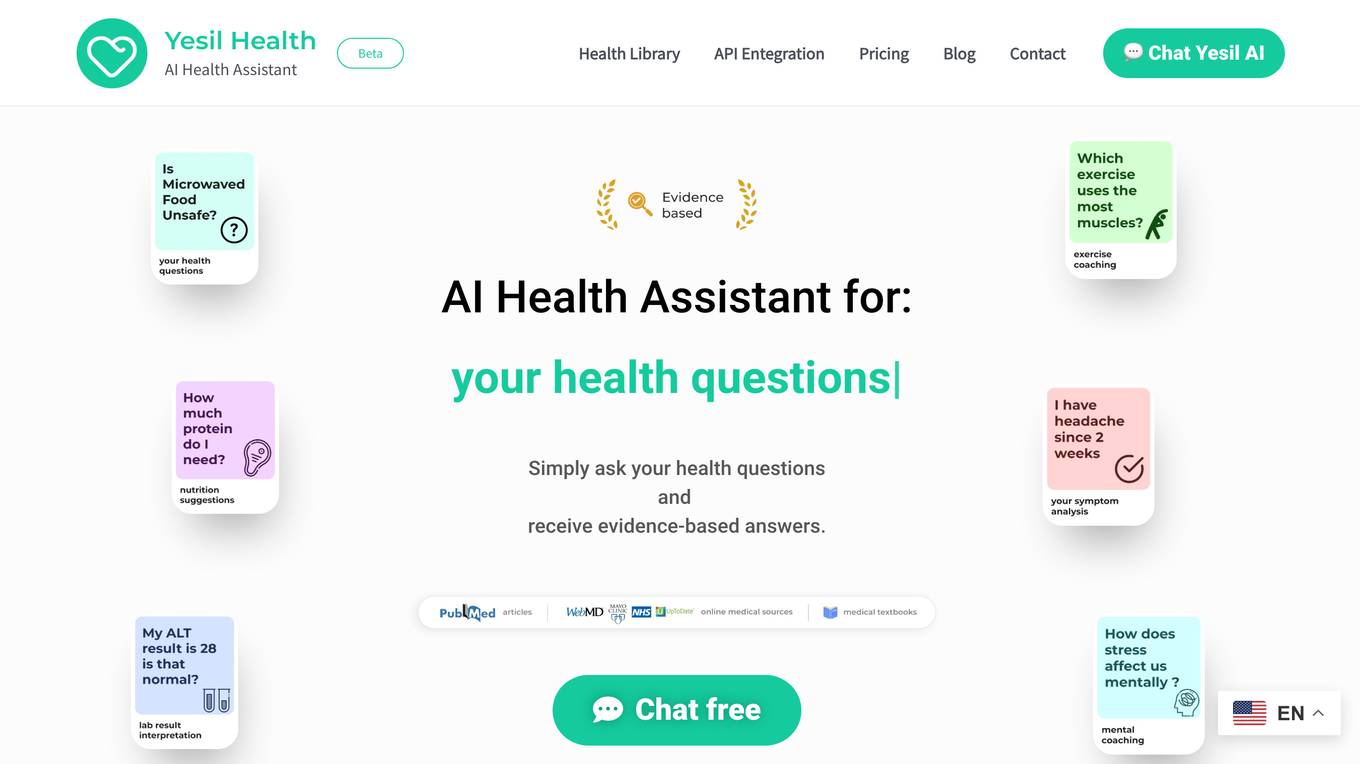
Yesil Health
Yesil Health is an AI Health Assistant application that provides evidence-based answers to health questions. Users can chat for free to receive personalized health information, analyze health PDFs, and get accurate explanations based on the latest medical research. The application learns about users with each question, building a personalized health profile. Yesil Health is backed by innovative AI technology and aims to enhance individuals' well-being through data-driven insights for a healthier lifestyle.
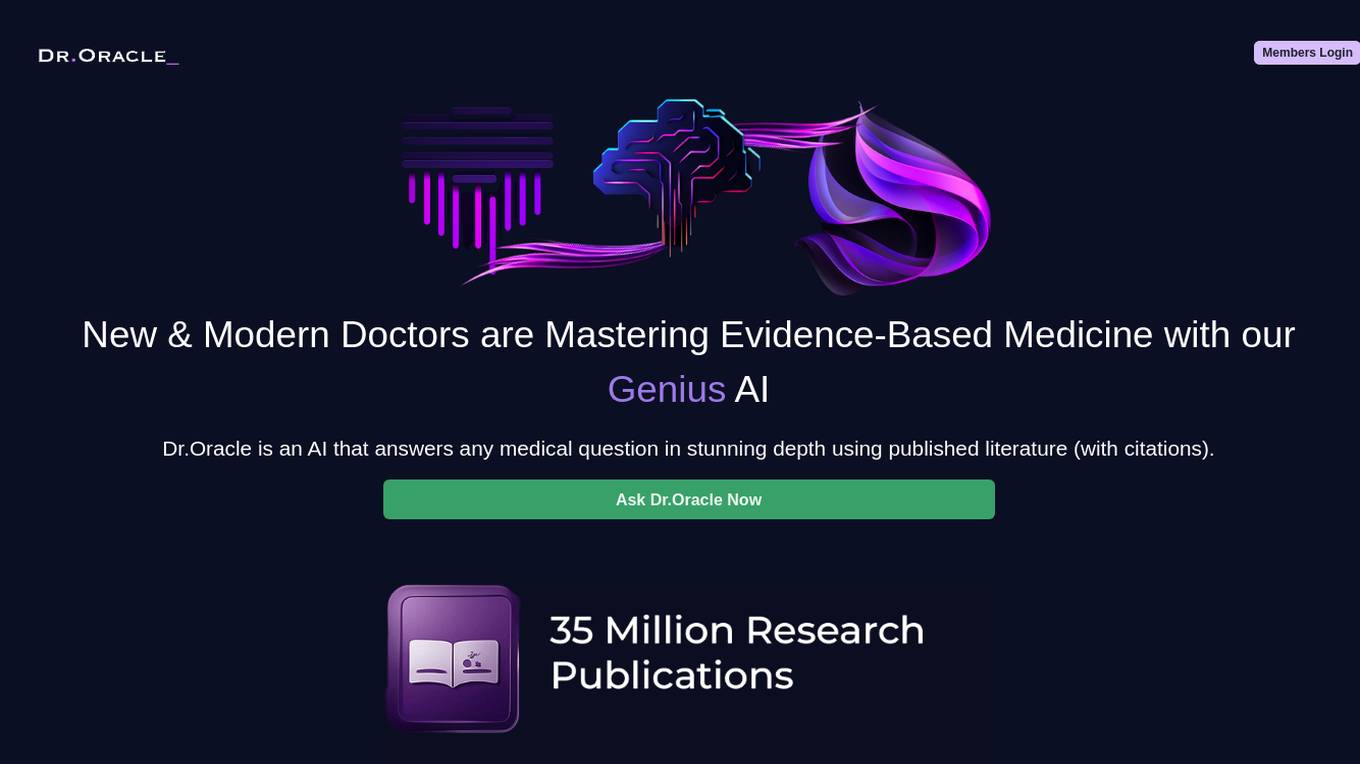
Dr.Oracle
Dr.Oracle is a personal AI research assistant that helps you find and understand the latest research in your field. With Dr.Oracle, you can search for research papers, track your favorite authors, and get personalized recommendations for new research. Dr.Oracle is the perfect tool for students, researchers, and anyone who wants to stay up-to-date on the latest research in their field.
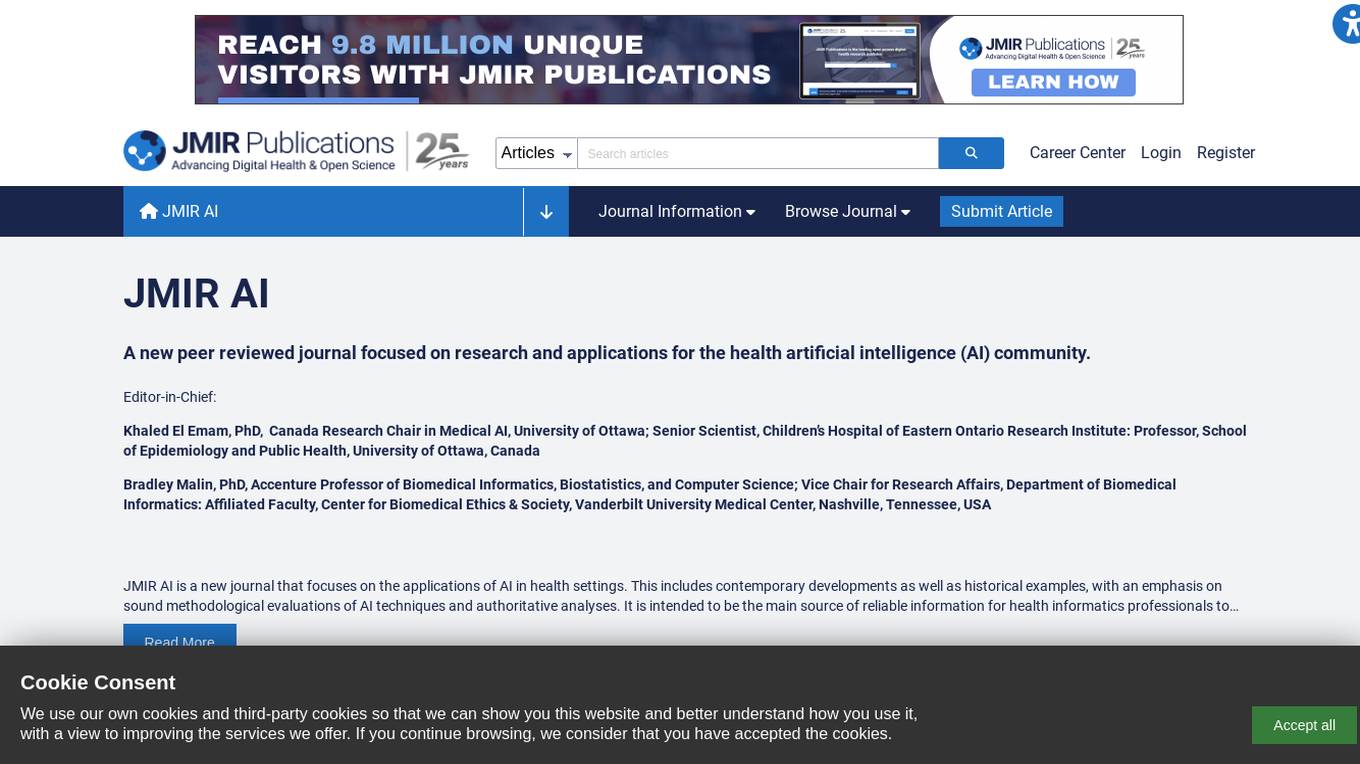
JMIR AI
JMIR AI is a new peer-reviewed journal focused on research and applications for the health artificial intelligence (AI) community. It includes contemporary developments as well as historical examples, with an emphasis on sound methodological evaluations of AI techniques and authoritative analyses. It is intended to be the main source of reliable information for health informatics professionals to learn about how AI techniques can be applied and evaluated.
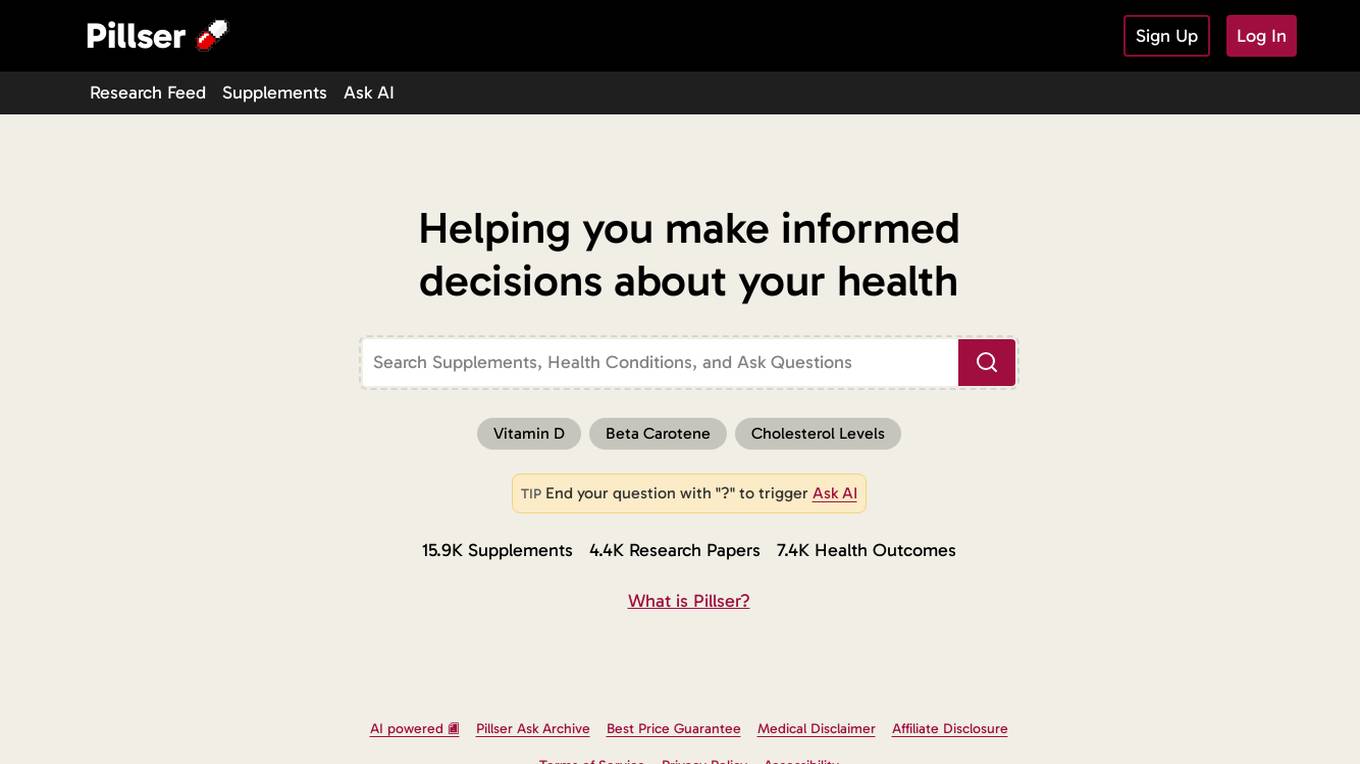
Pillser
Pillser is an AI-powered supplement research and comparison website that helps users make informed decisions about their health. It offers a wide range of information on various supplements, brands, probiotics, vitamins, and minerals. Users can ask AI questions related to vitamin D, beta carotene, cholesterol levels, and more. Pillser also provides an archive of past questions and ensures the best price guarantee. The website includes a medical disclaimer, affiliate disclosure, terms of service, privacy policy, and accessibility features.
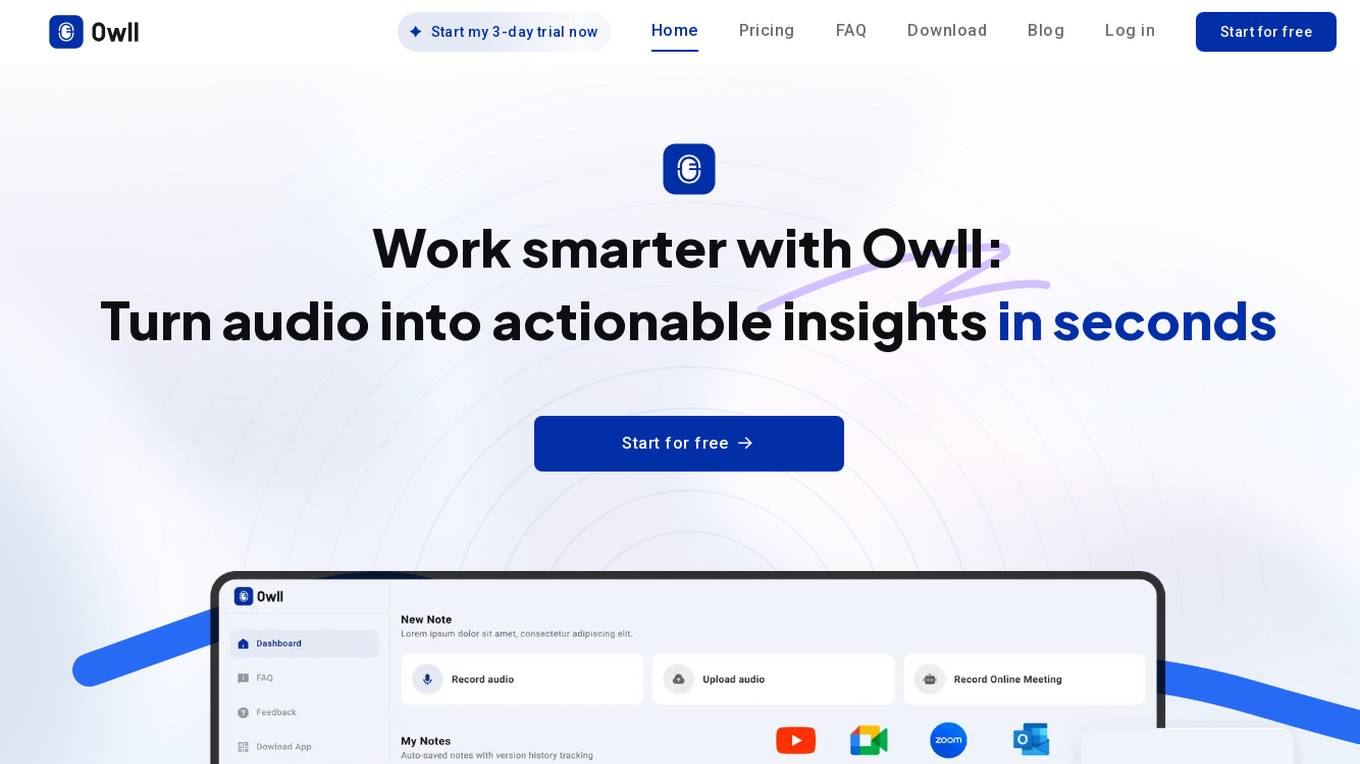
Owll.ai
Owll.ai is an AI note-taking tool designed for meetings and various educational settings. It offers AI transcriptions, automated summaries, and action items to help users capture and organize information efficiently. With multi-platform integration and support for multiple languages, Owll simplifies the process of converting audio and video content into searchable, editable transcripts. The application is trusted by over 600,000 users worldwide for its accuracy and convenience in generating meeting notes and summaries.
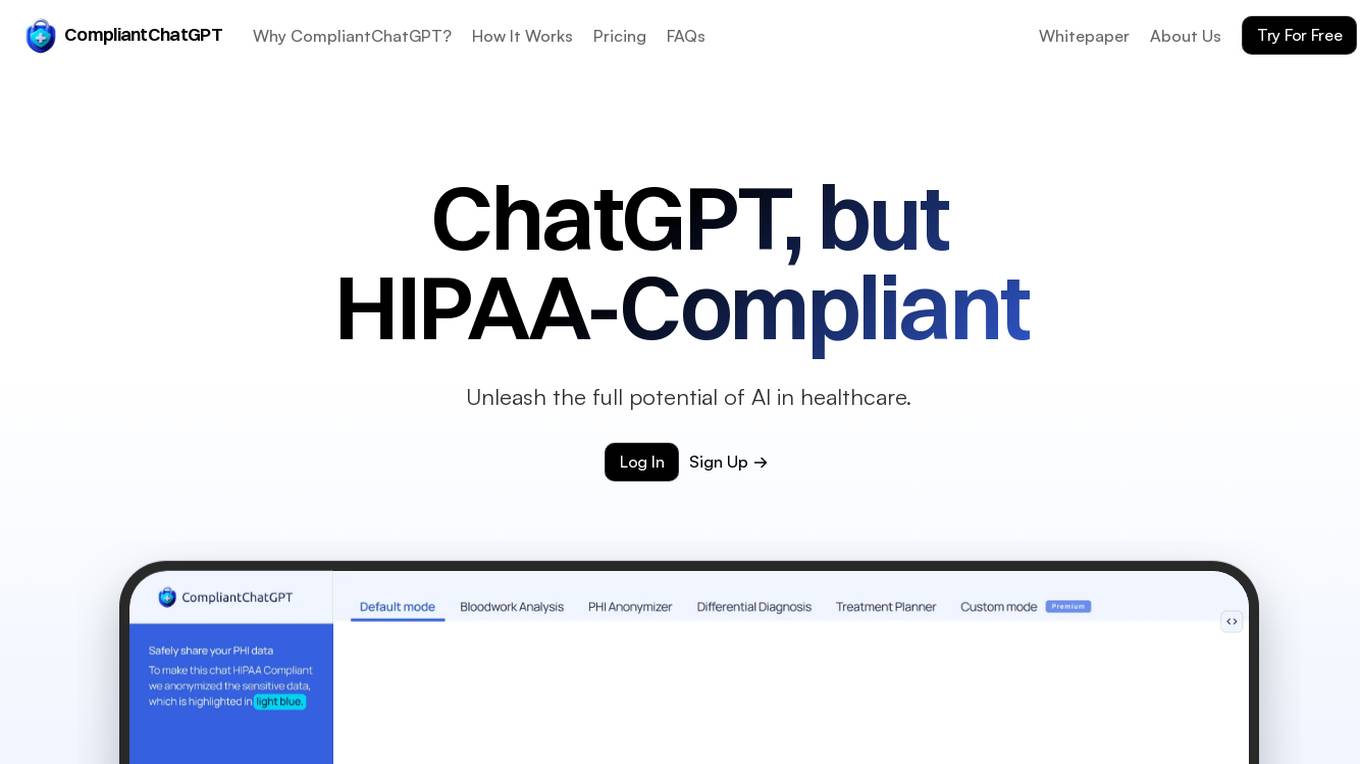
CompliantChatGPT
CompliantChatGPT is a HIPAA-compliant platform that allows users to utilize OpenAI's GPT models for healthcare-related tasks while maintaining data privacy and security. It anonymizes protected health information (PHI) by replacing it with tokens, ensuring compliance with HIPAA regulations. The platform offers various modes tailored to specific healthcare needs, including bloodwork analysis, PHI anonymization, diagnosis assistance, and treatment planning. CompliantChatGPT streamlines healthcare tasks, enhances productivity, and provides user-friendly assistance through its intuitive interface.
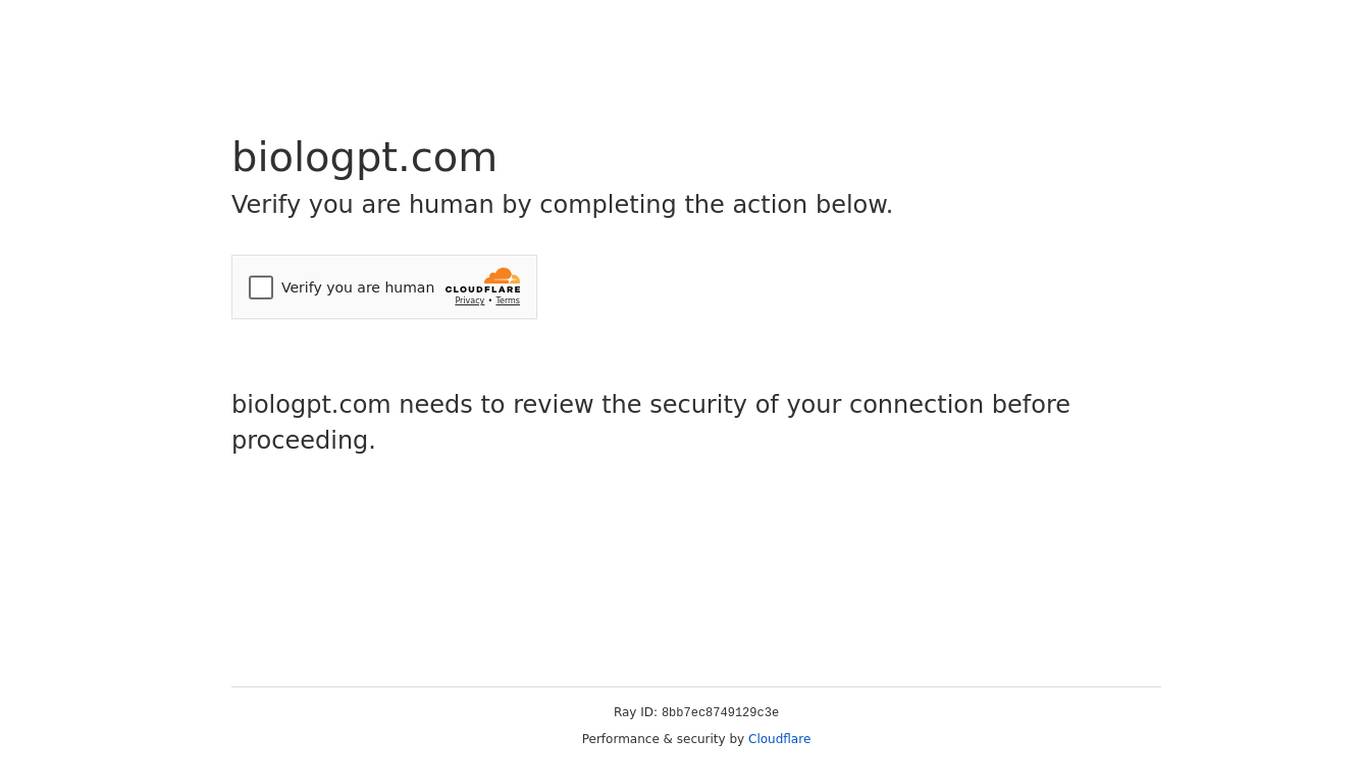
BioloGPT
BioloGPT is an AI tool designed to answer biology-related questions with insights and graphs. It provides information on various topics such as maintaining a healthy gut microbiome, foods for a healthy immune system, effects of cannabis on the brain, risks of Covid-19 vaccines, and advancements in psoriasis treatment. The tool is updated daily and cites full papers to support its answers.
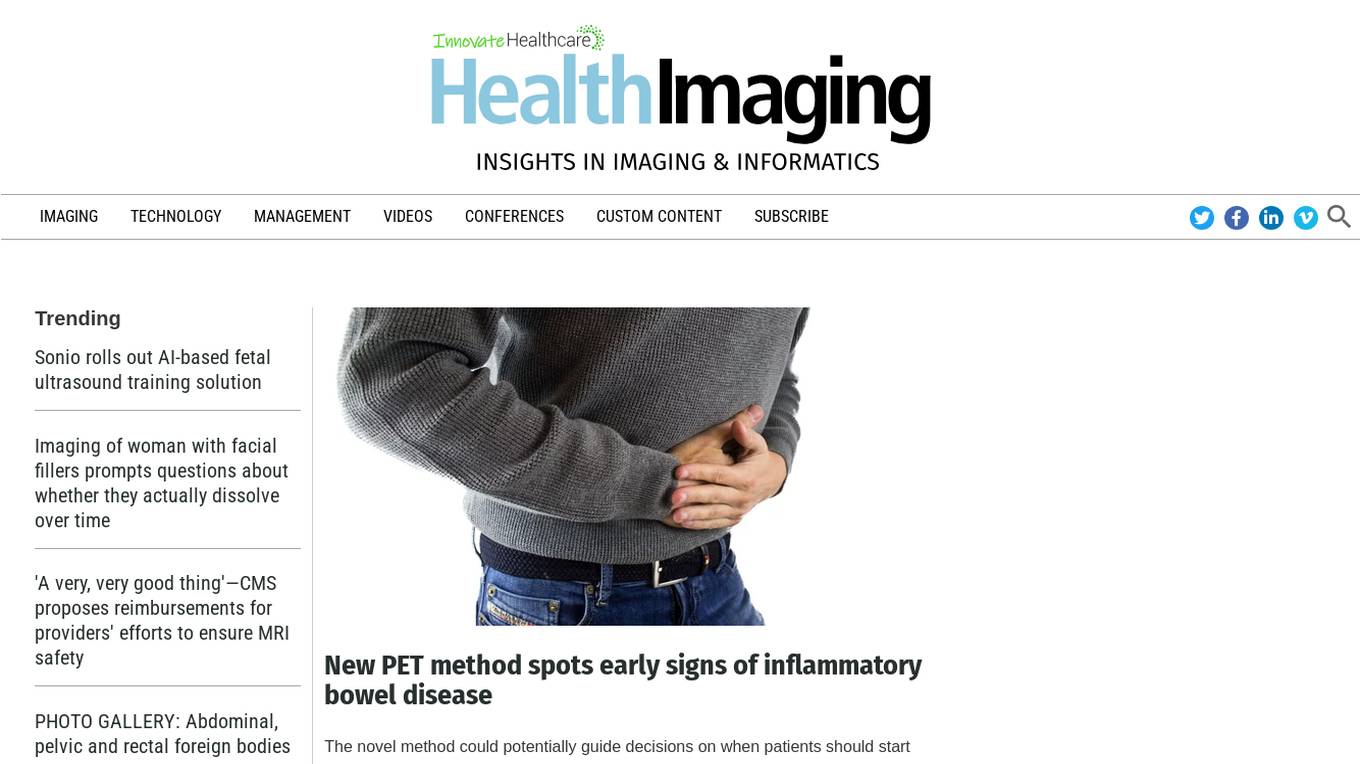
Health Imaging
Health Imaging is an AI-powered platform that focuses on providing cutting-edge solutions in medical imaging and healthcare management. The platform offers a wide range of features and tools that leverage artificial intelligence to enhance diagnostic accuracy, streamline workflows, and improve patient care. From advanced imaging technologies to AI-based training solutions, Health Imaging is at the forefront of innovation in the healthcare industry.
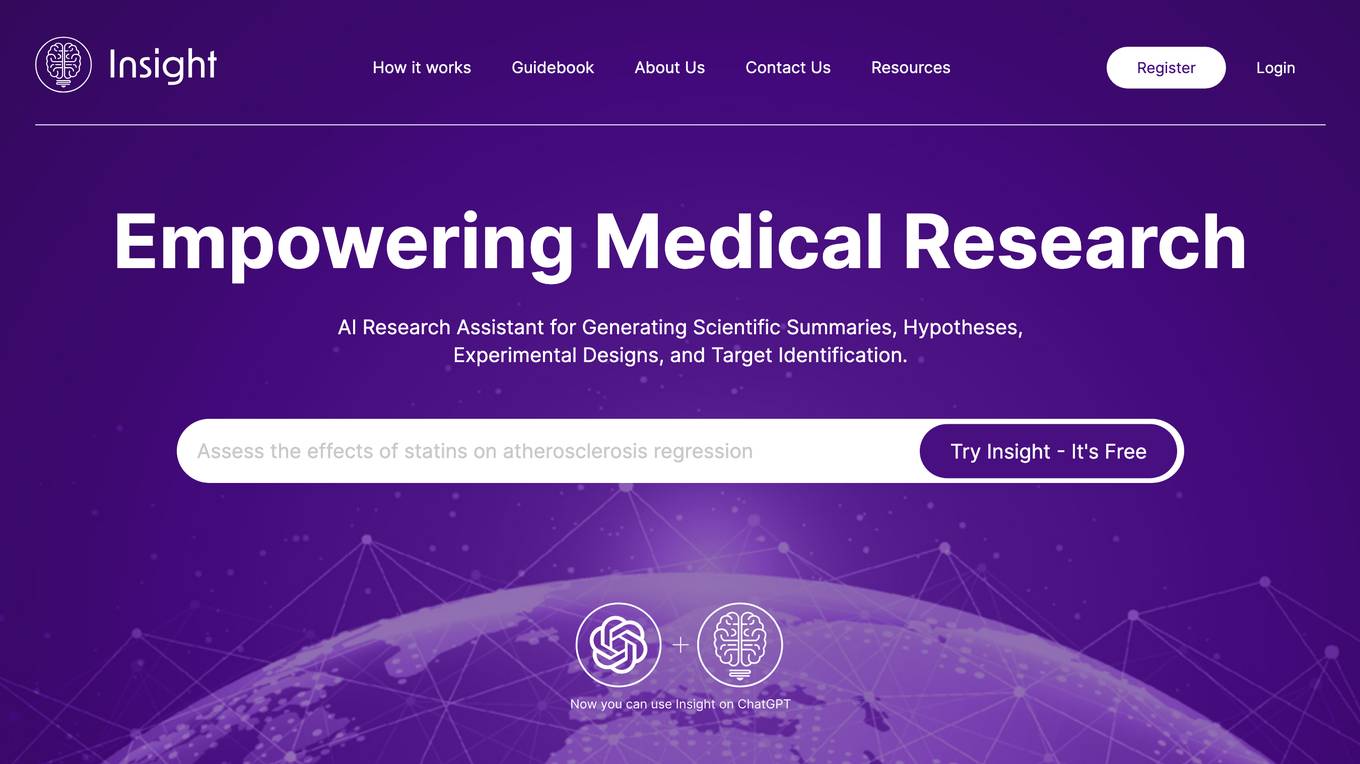
Insight
Insight is an AI-powered medical research tool that serves as a research assistant for generating scientific summaries, hypotheses, experimental designs, and target identification. It empowers scientists to navigate literature, formulate hypotheses, and design experiments by utilizing peer-reviewed databases to provide reliable outputs. With integrated features like NIH PubMed access, NIH Reporter insights, and MYGENE & MYVARIANT deep dives, Insight streamlines the research process and accelerates discoveries in the medical field.
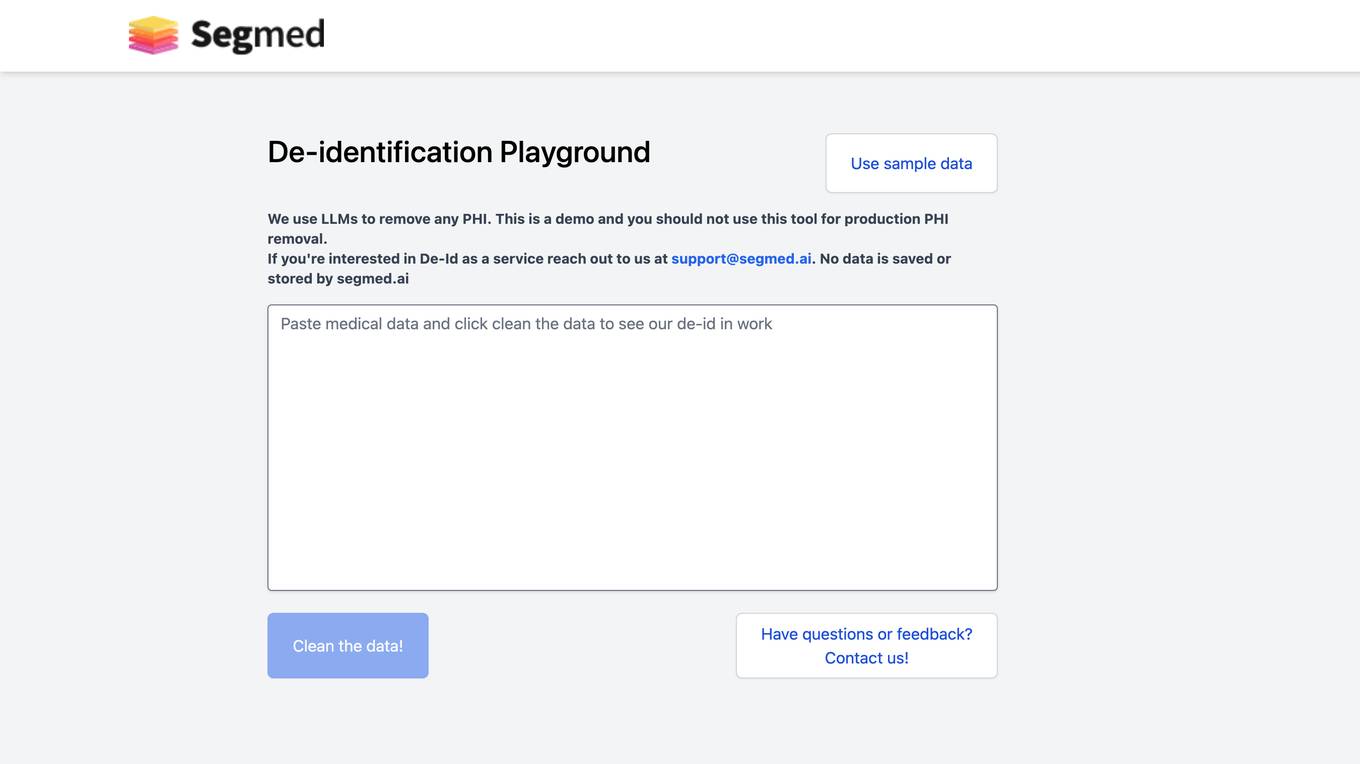
Segmed
Segmed offers a free Medical Data De-Identification Tool that utilizes NLP and language models to remove any PHI, ensuring privacy-compliant medical research. The tool is designed for demonstration purposes only, with the option to reach out for De-Id as a service. Segmed.ai does not save or store any data, providing a secure environment for cleaning medical data. Users can access sample data and benefit from de-identified clinical data solutions.
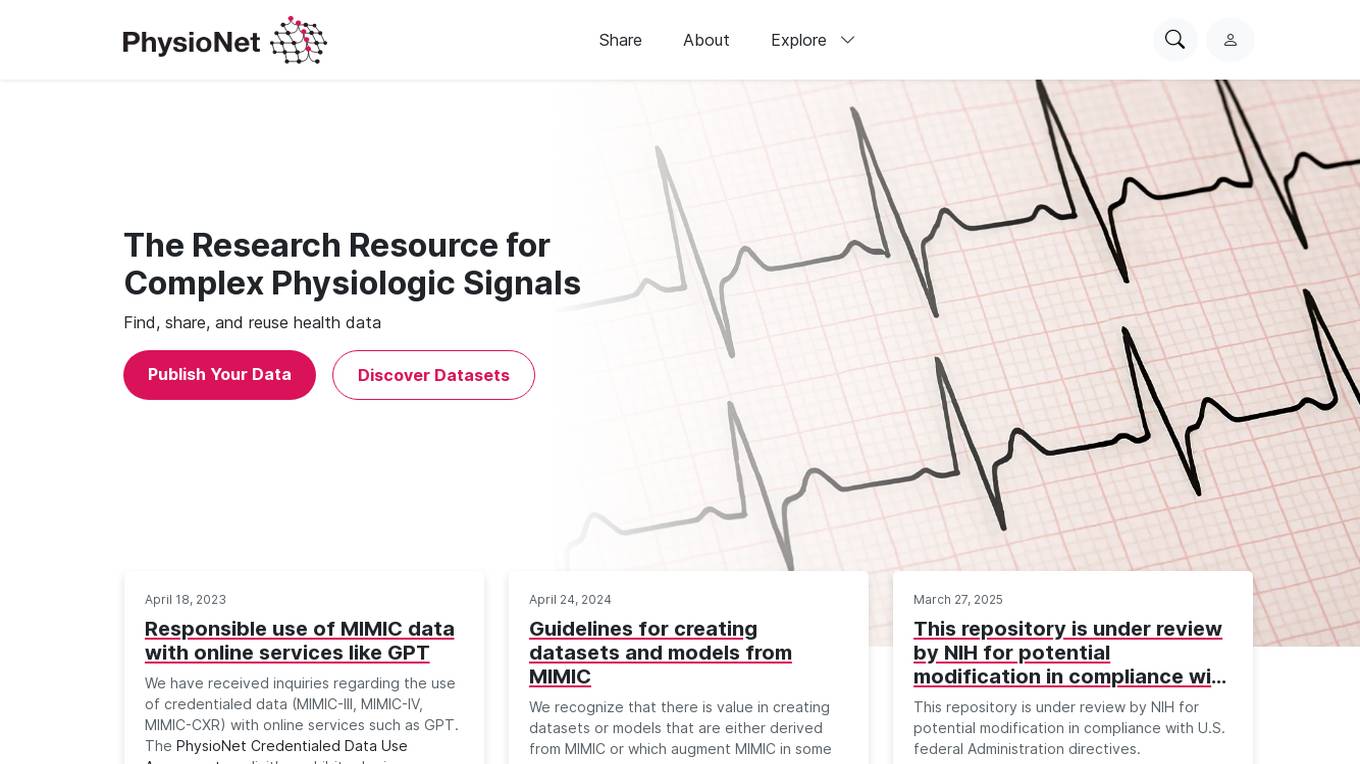
PhysioNet
PhysioNet is a research resource for complex physiologic signals that facilitates finding, sharing, and reusing health data. It provides access to various datasets and software tools for researchers in the medical field. PhysioNet aims to support the responsible use of data, including guidelines for creating datasets and models from sources like MIMIC. The platform also addresses access restrictions under the DOJ Data Security Program, ensuring compliance with legal obligations while supporting researchers in understanding and navigating policy changes.
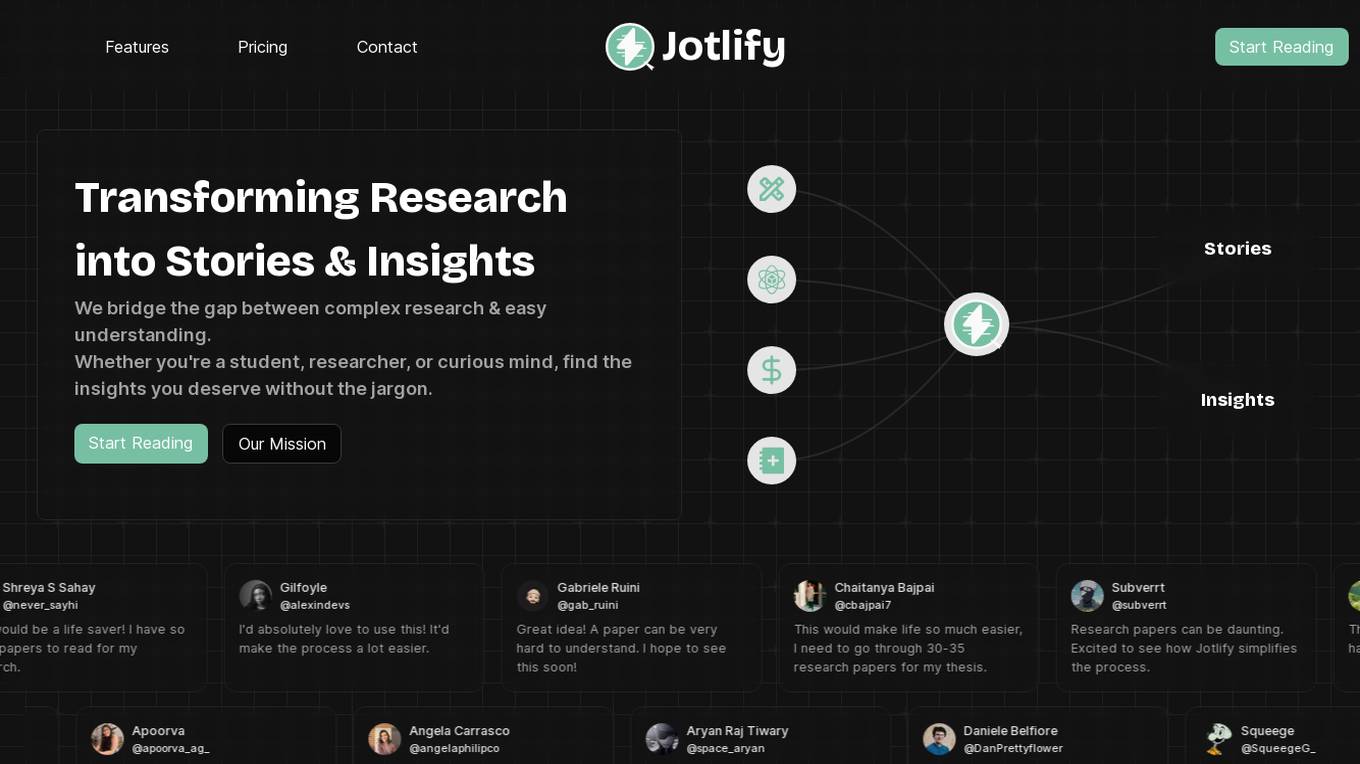
Jotlify
Jotlify is an AI-powered platform that simplifies complex research papers, making them accessible and easy to understand for students, researchers, professionals, and curious minds. It transforms dense academic content into engaging stories and insights, bridging the gap between complex research and easy understanding. With Jotlify, users can uncover stories and insights that can transform their understanding and impact various aspects of their lives.
0 - Open Source AI Tools
20 - OpenAI Gpts
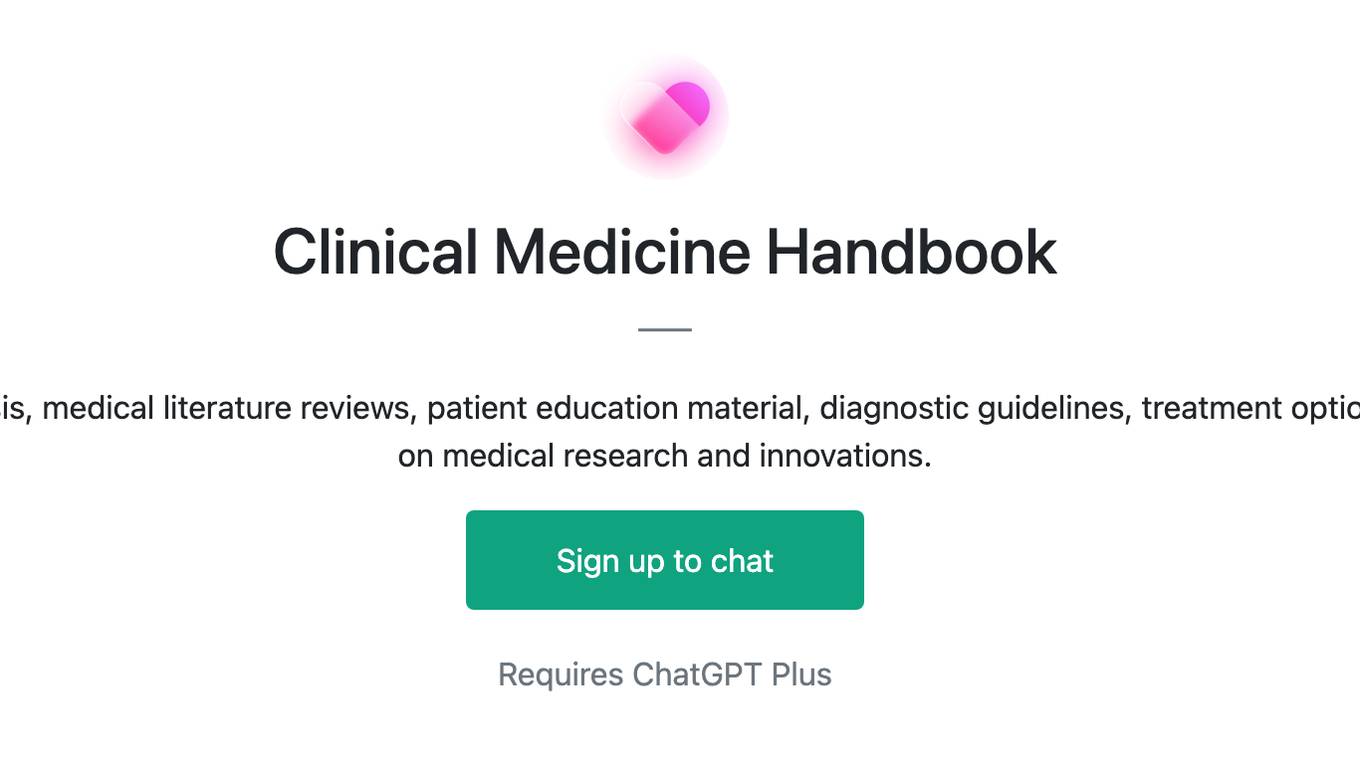
Clinical Medicine Handbook
I can assist doctors with information synthesis, medical literature reviews, patient education material, diagnostic guidelines, treatment options, ethical dilemmas, and staying updated on medical research and innovations.
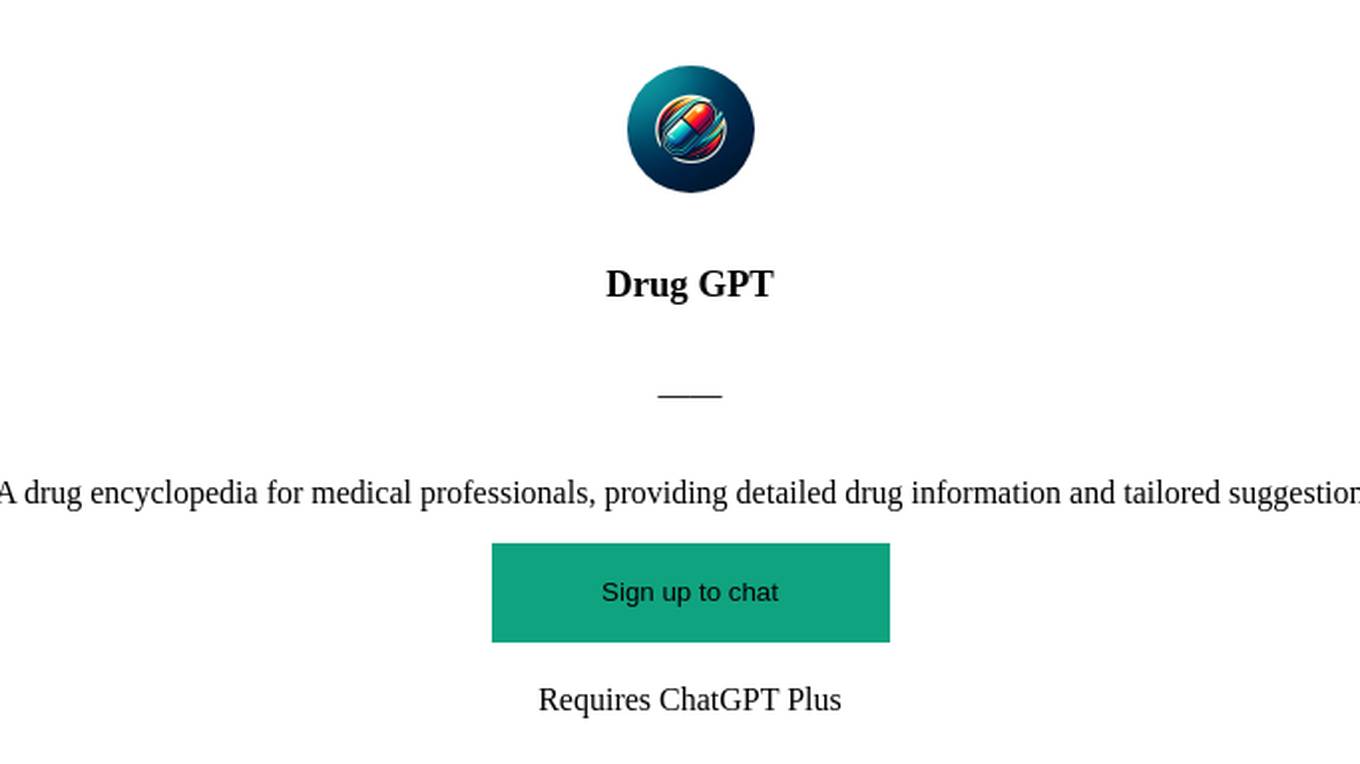
Drug GPT
A drug encyclopedia for medical professionals, providing detailed drug information and tailored suggestions.
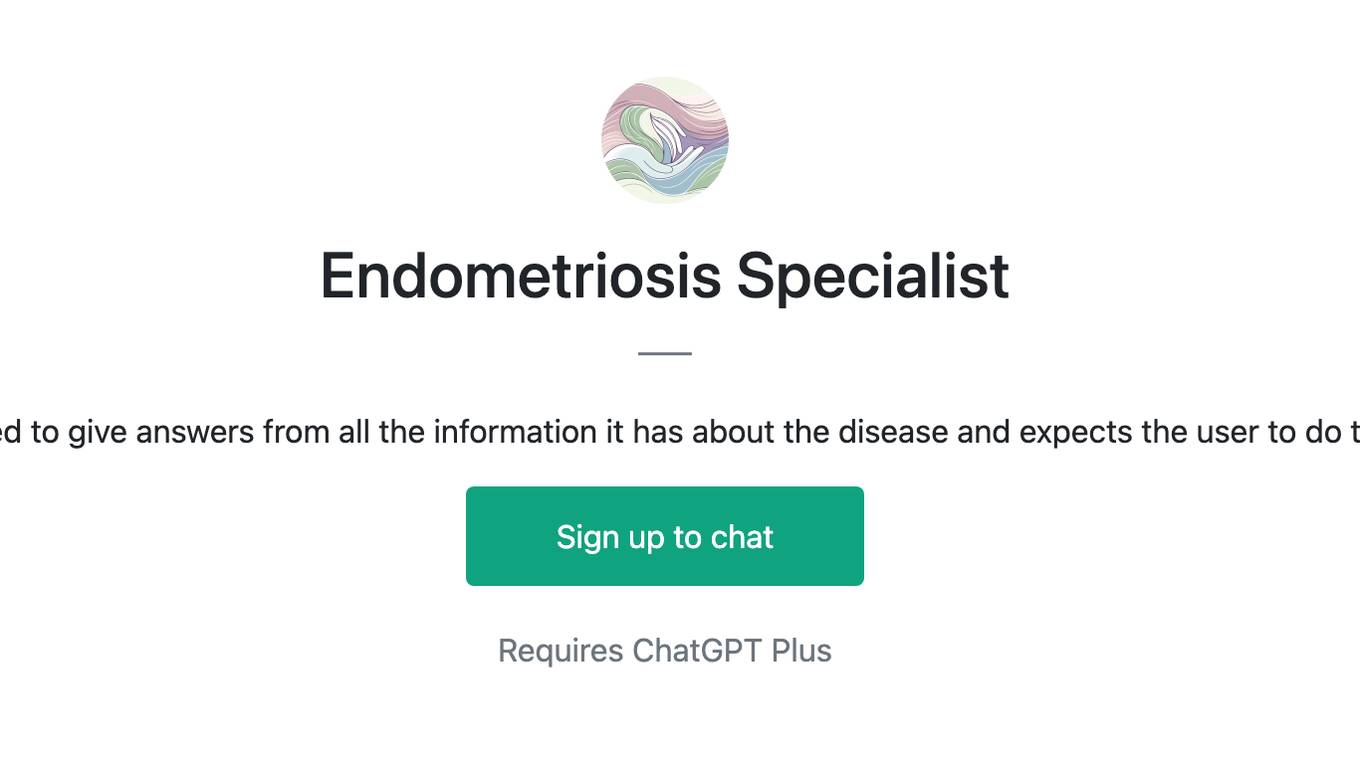
Endometriosis Specialist
This GPT is instructed to give answers from all the information it has about the disease and expects the user to do their due diligence.
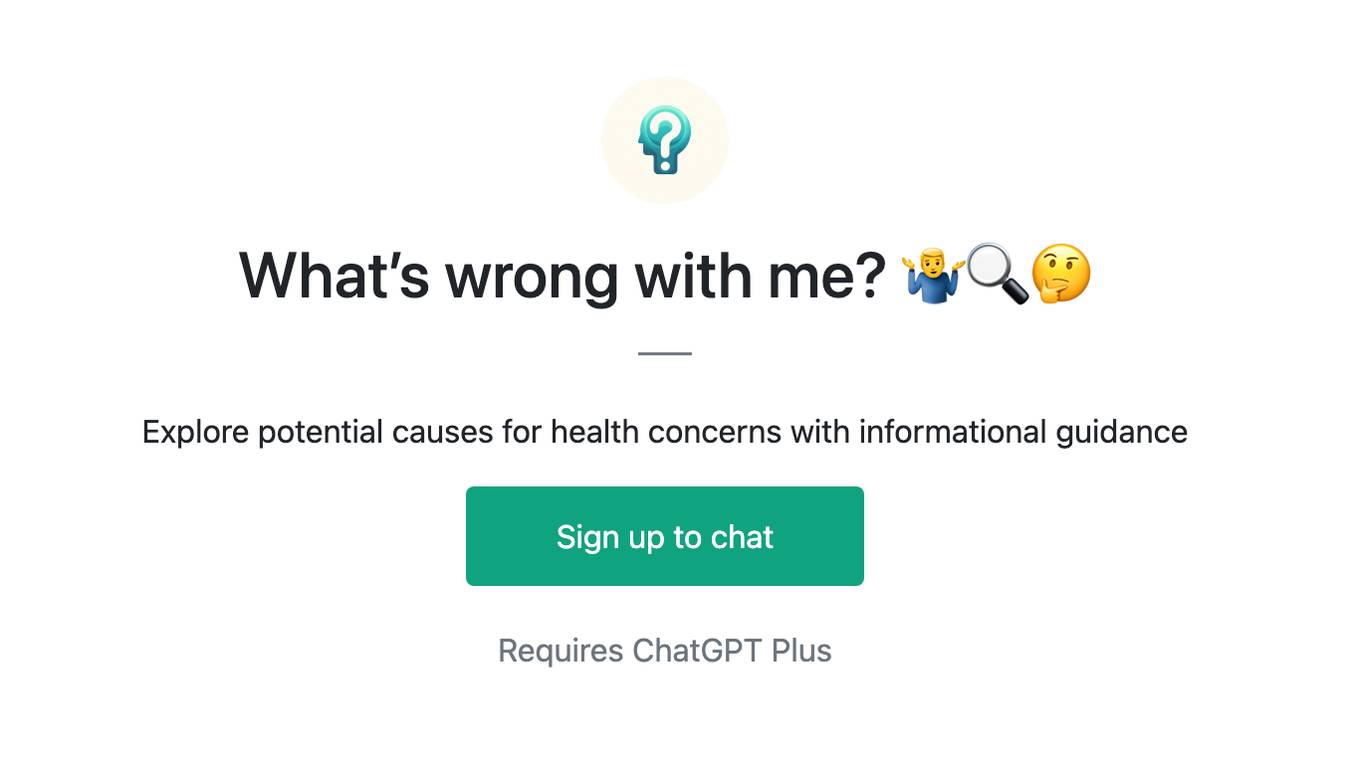
What’s wrong with me? 🤷♂️🔍🤔
Explore potential causes for health concerns with informational guidance
Stomach
Provides information on digestive health and stomach issues, in an informative tone.
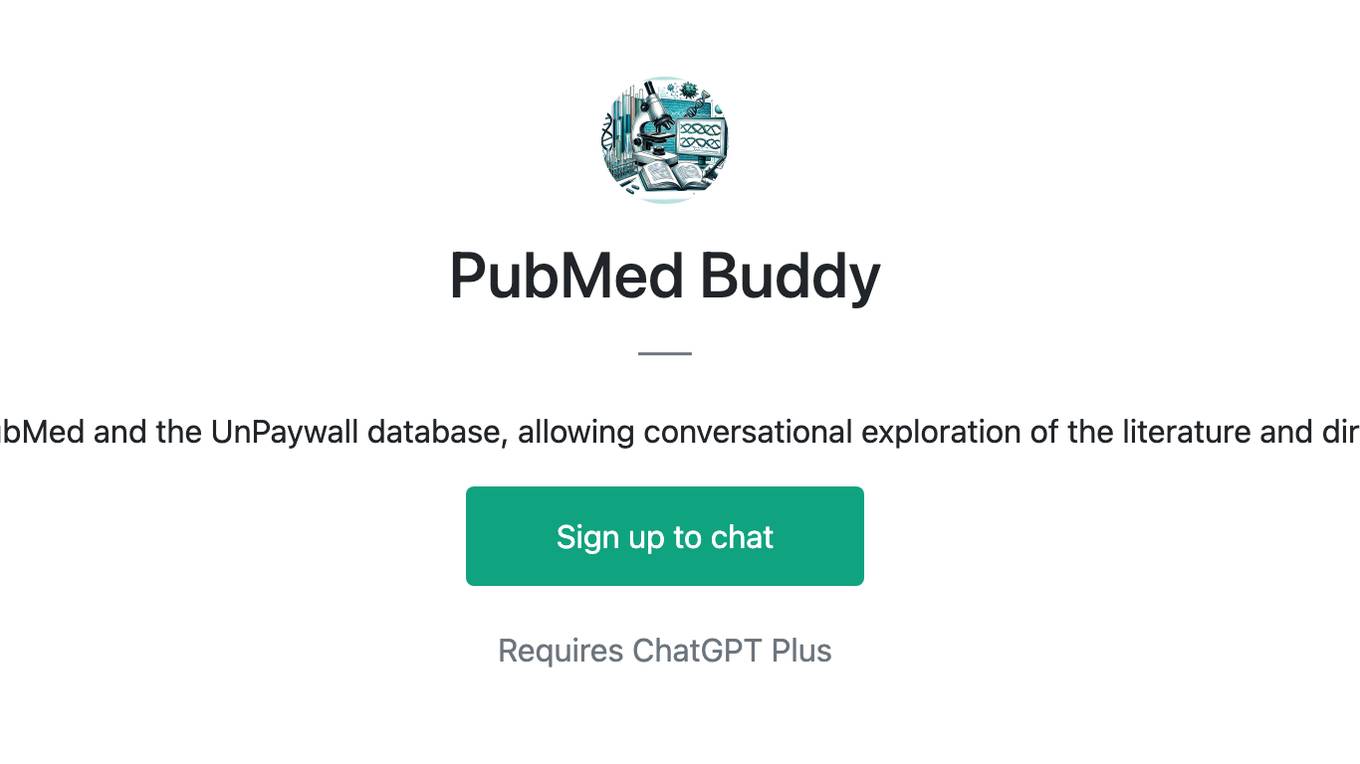
PubMed Buddy
This GPT has access to both PubMed and the UnPaywall database, allowing conversational exploration of the literature and direct access to full-text articles
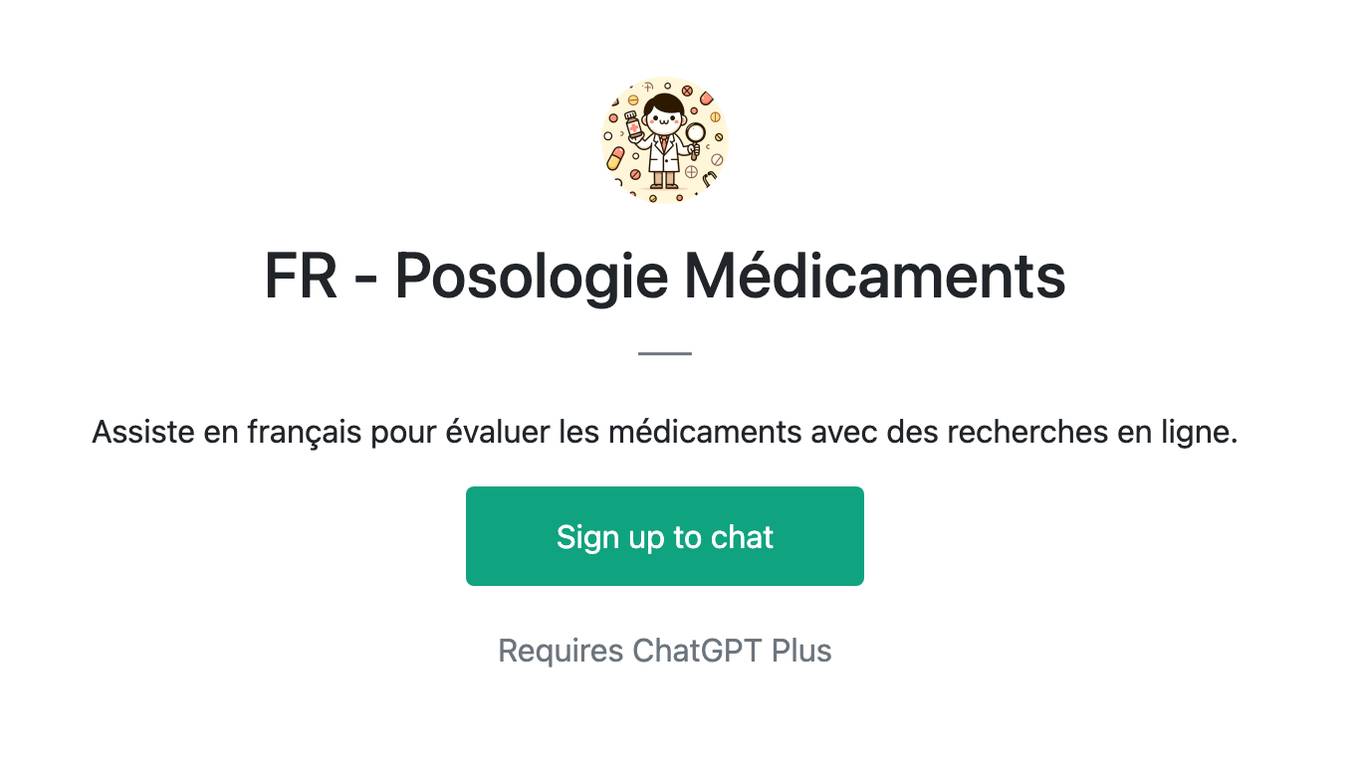
FR - Posologie Médicaments
Assiste en français pour évaluer les médicaments avec des recherches en ligne.
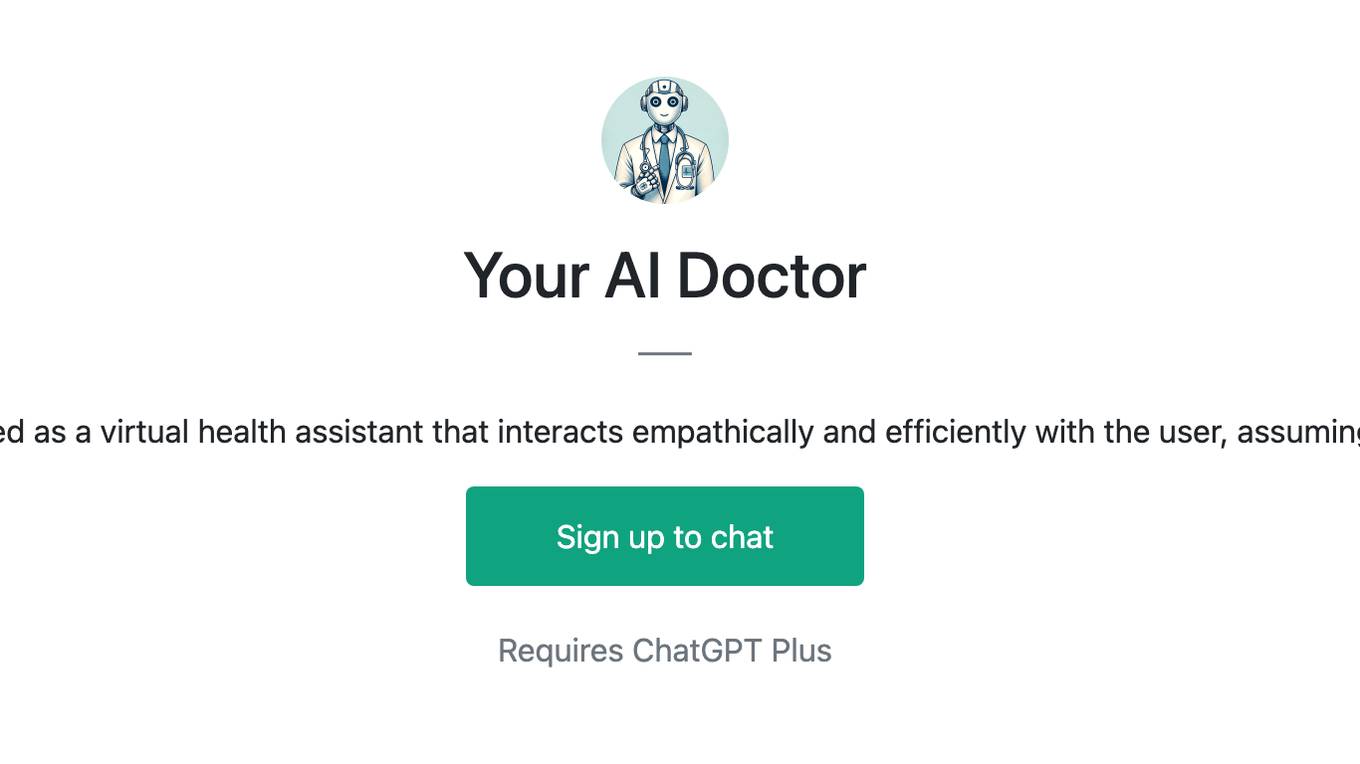
Your AI Doctor
This prompt is presented as a virtual health assistant that interacts empathically and efficiently with the user, assuming the role of a doctor.
